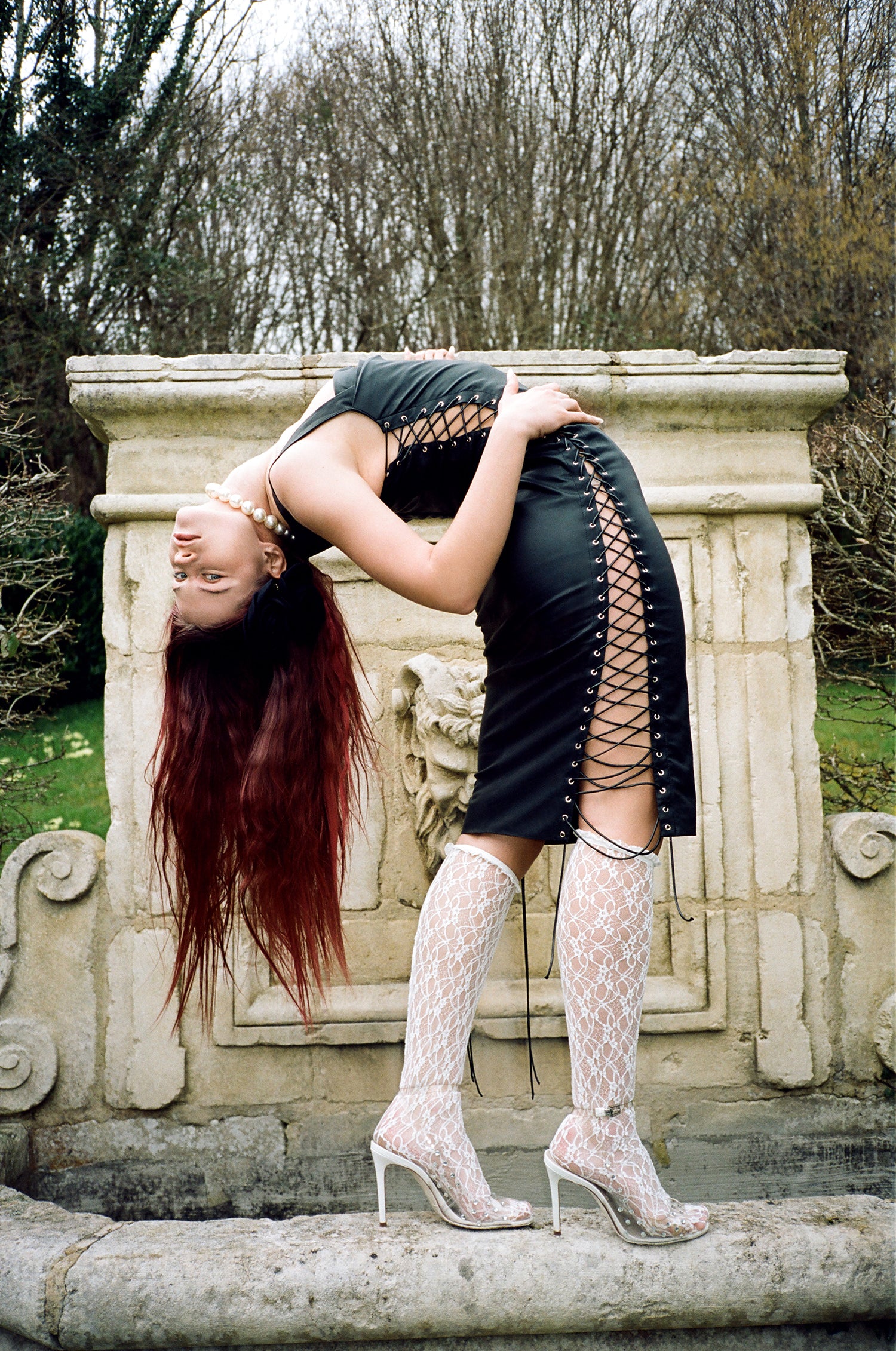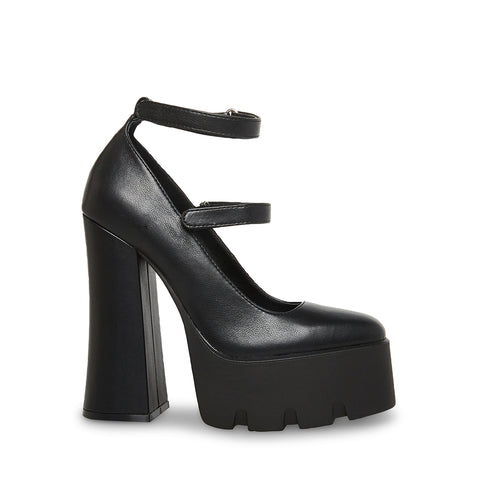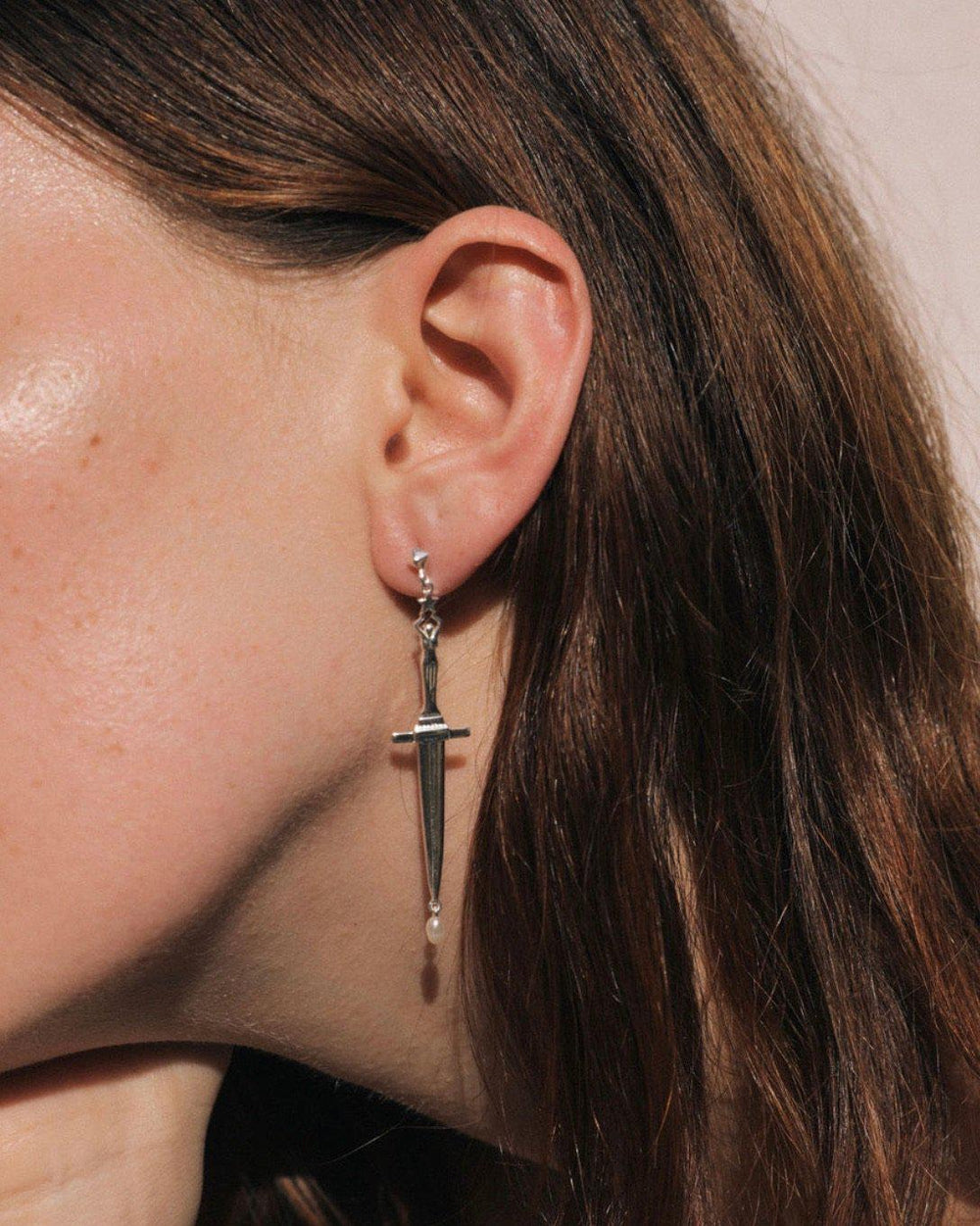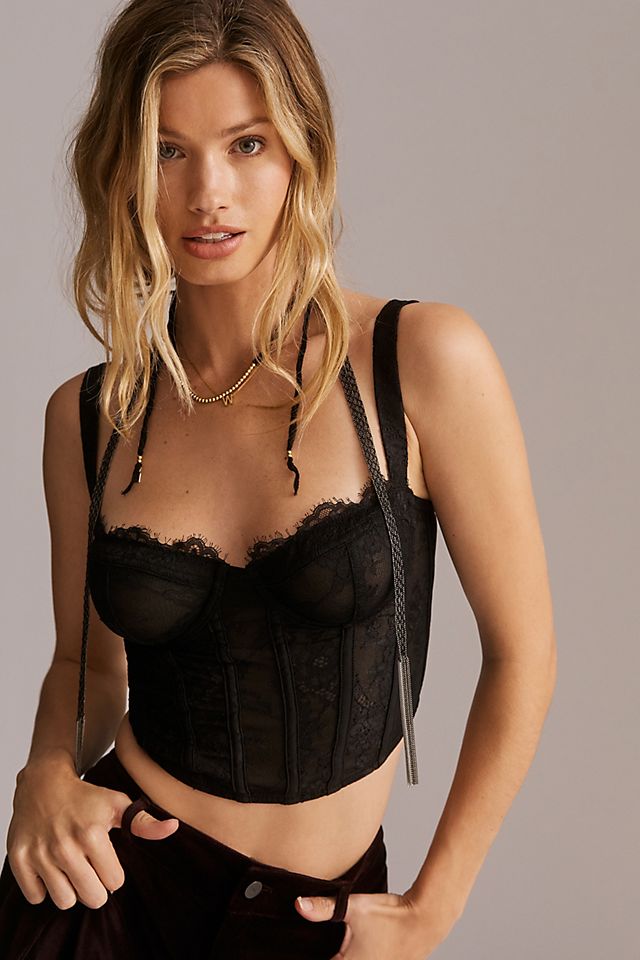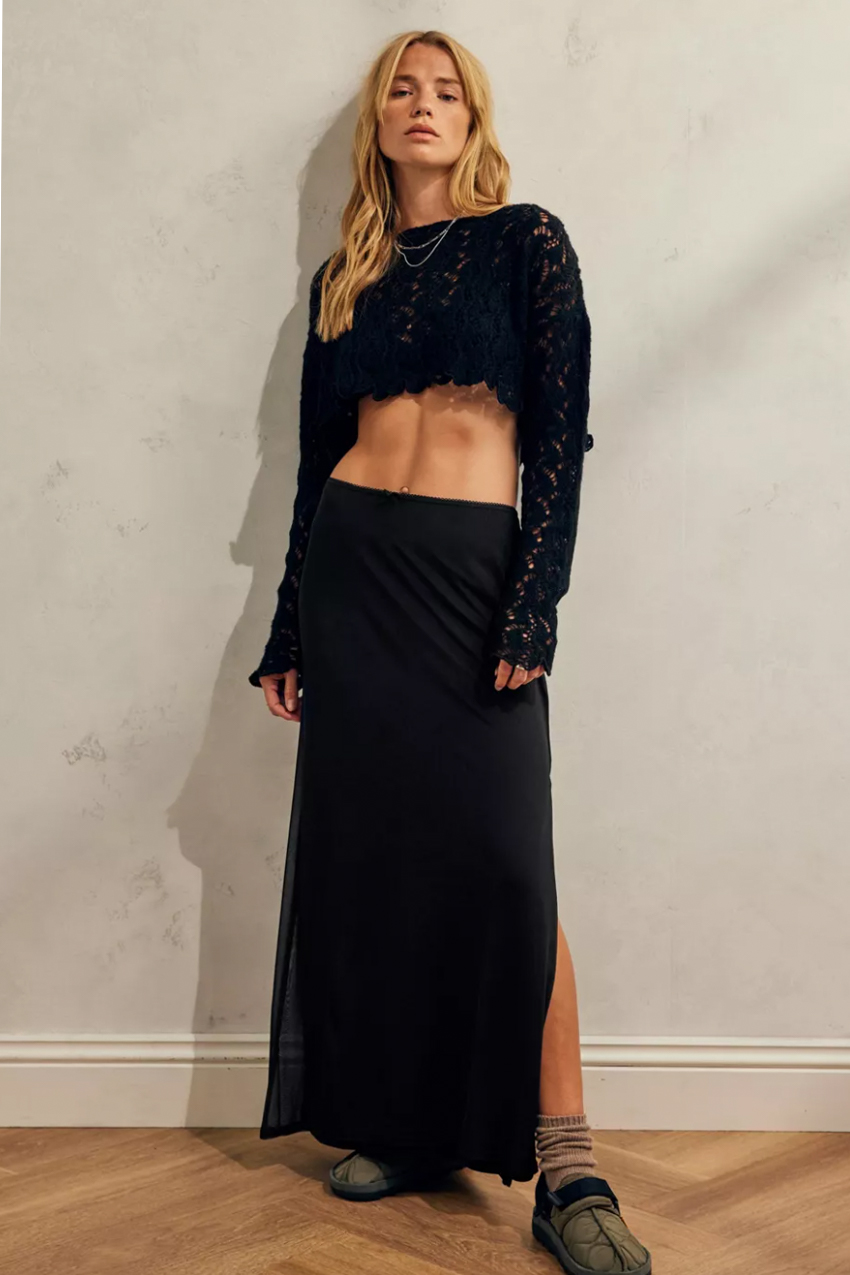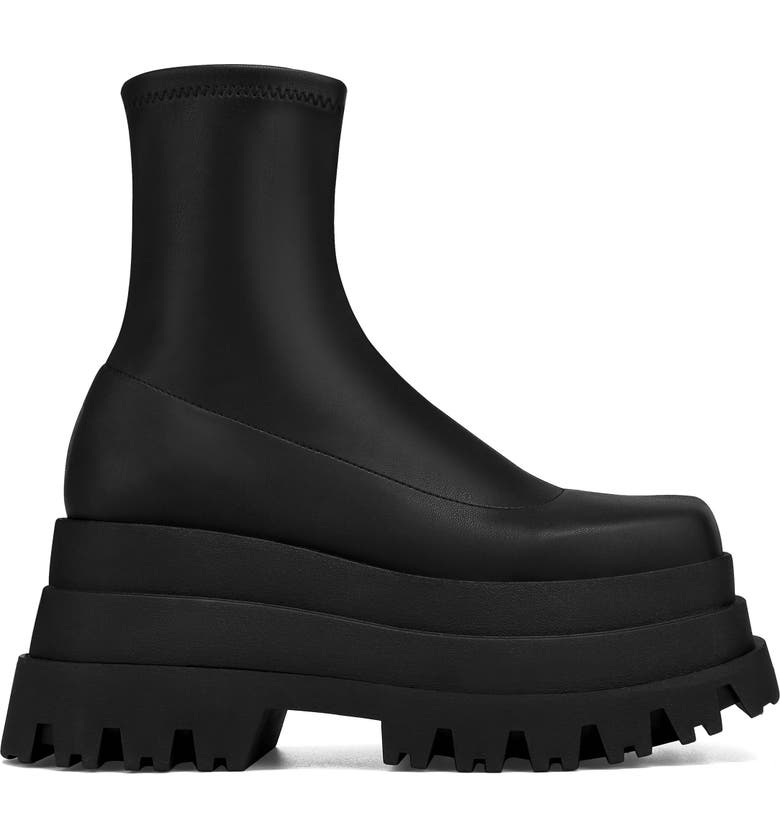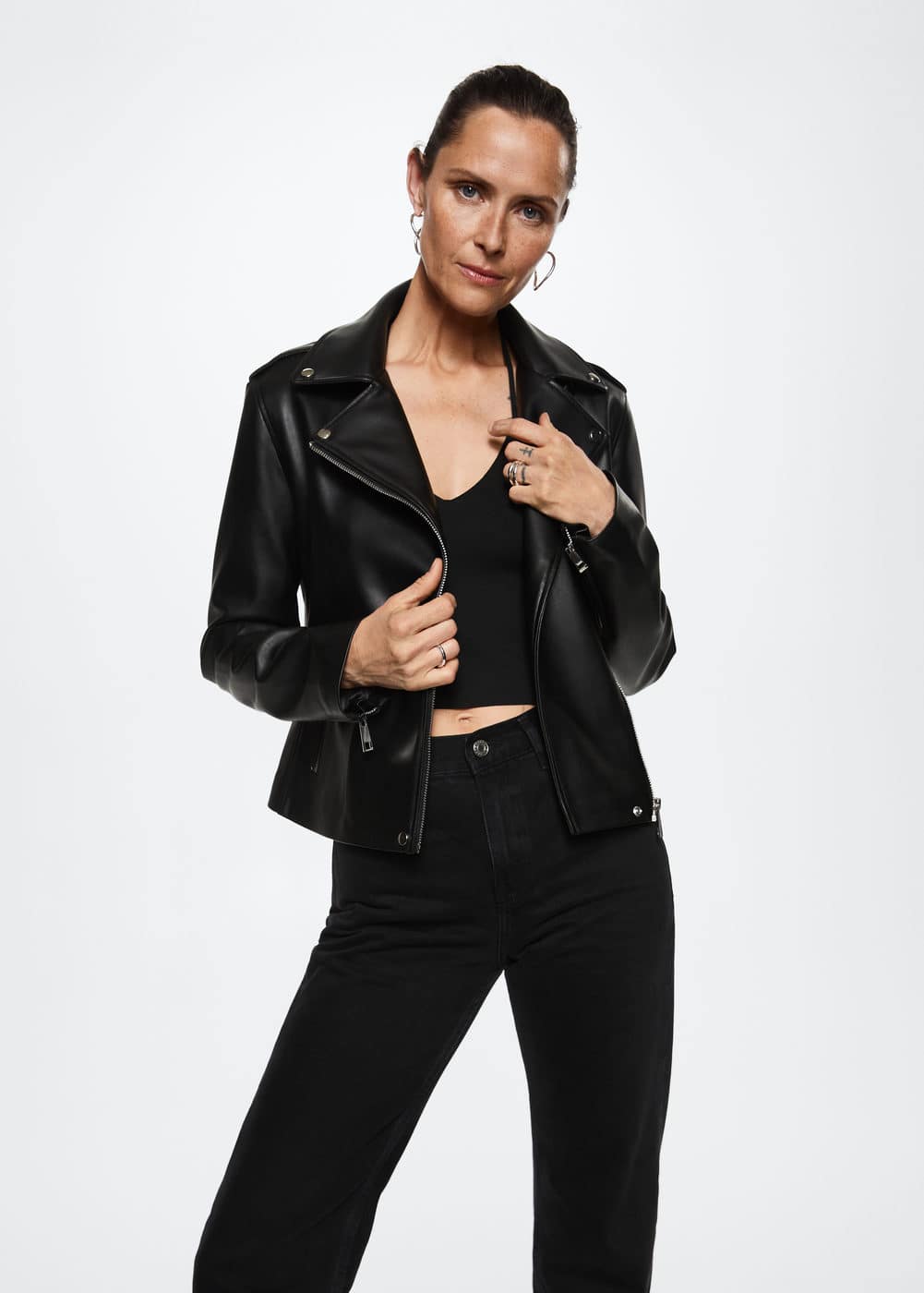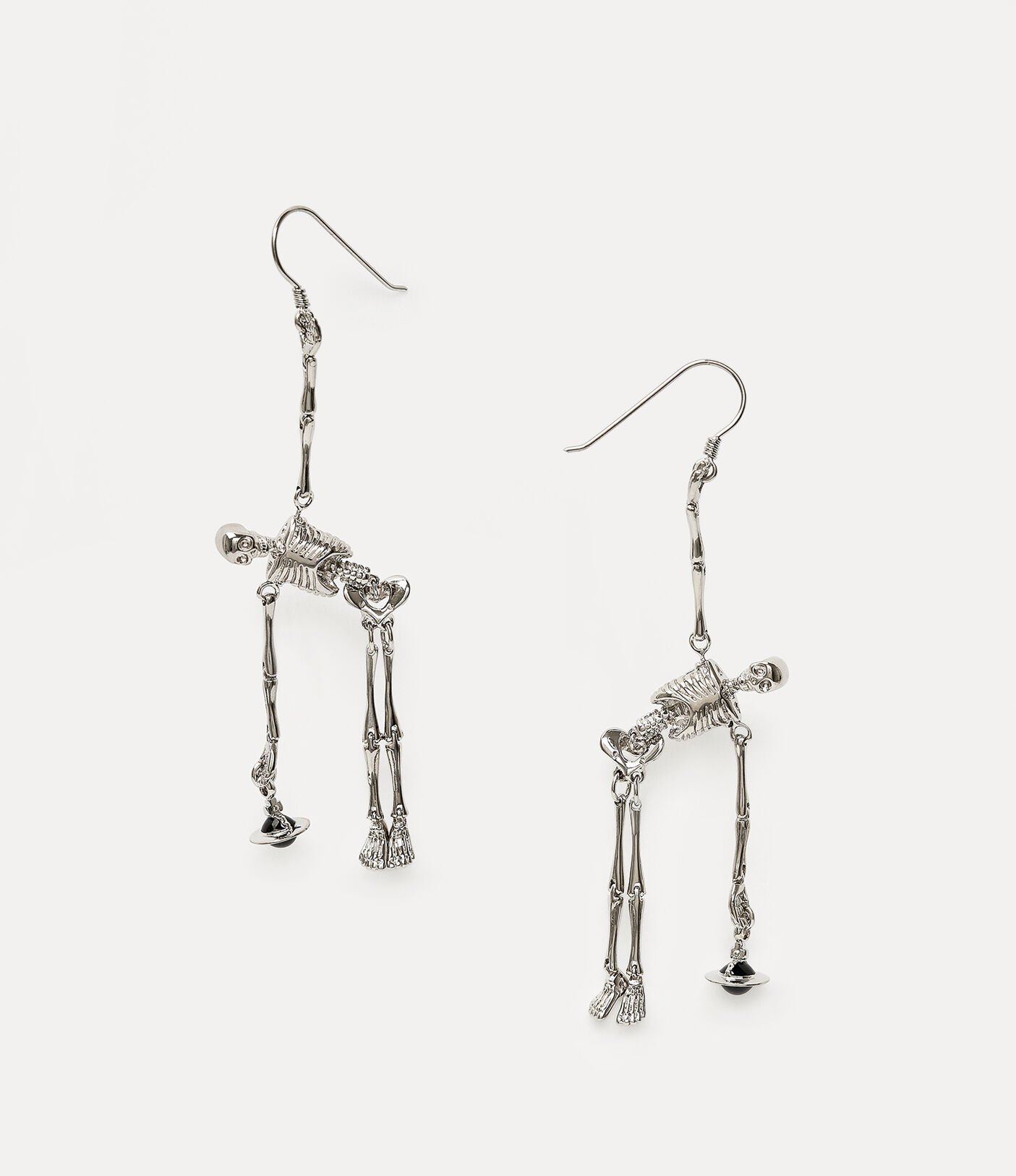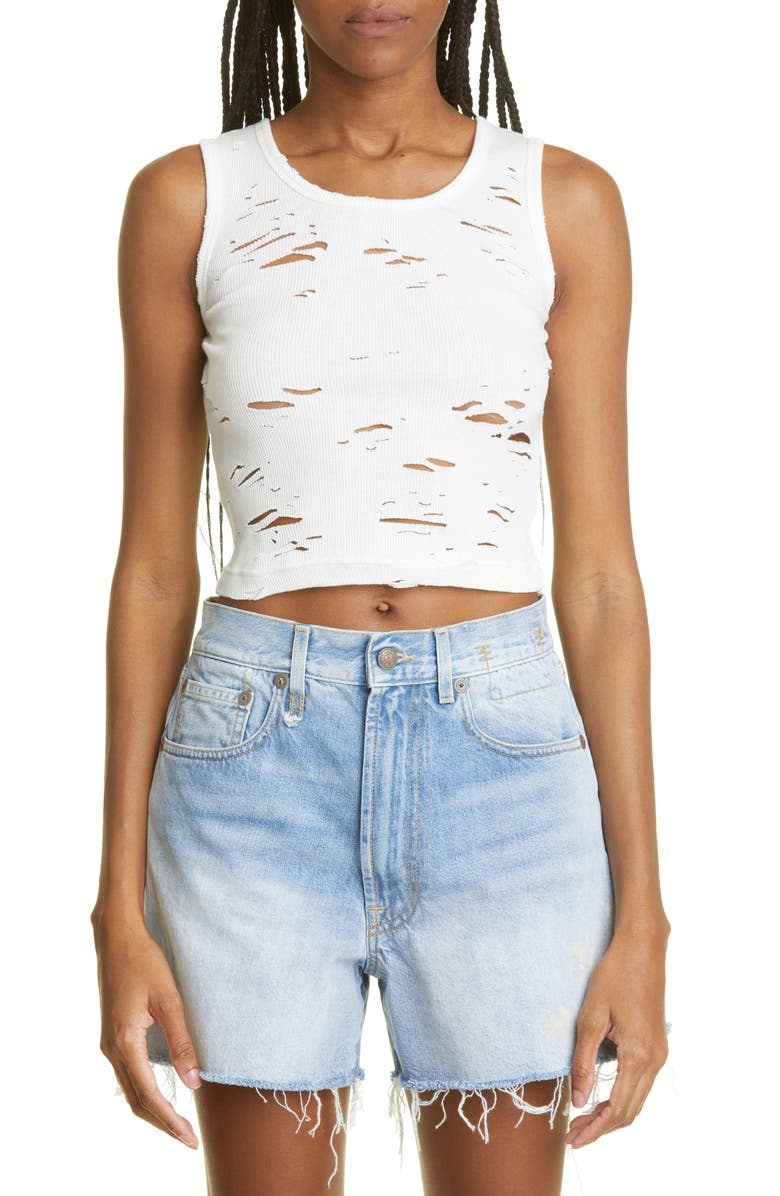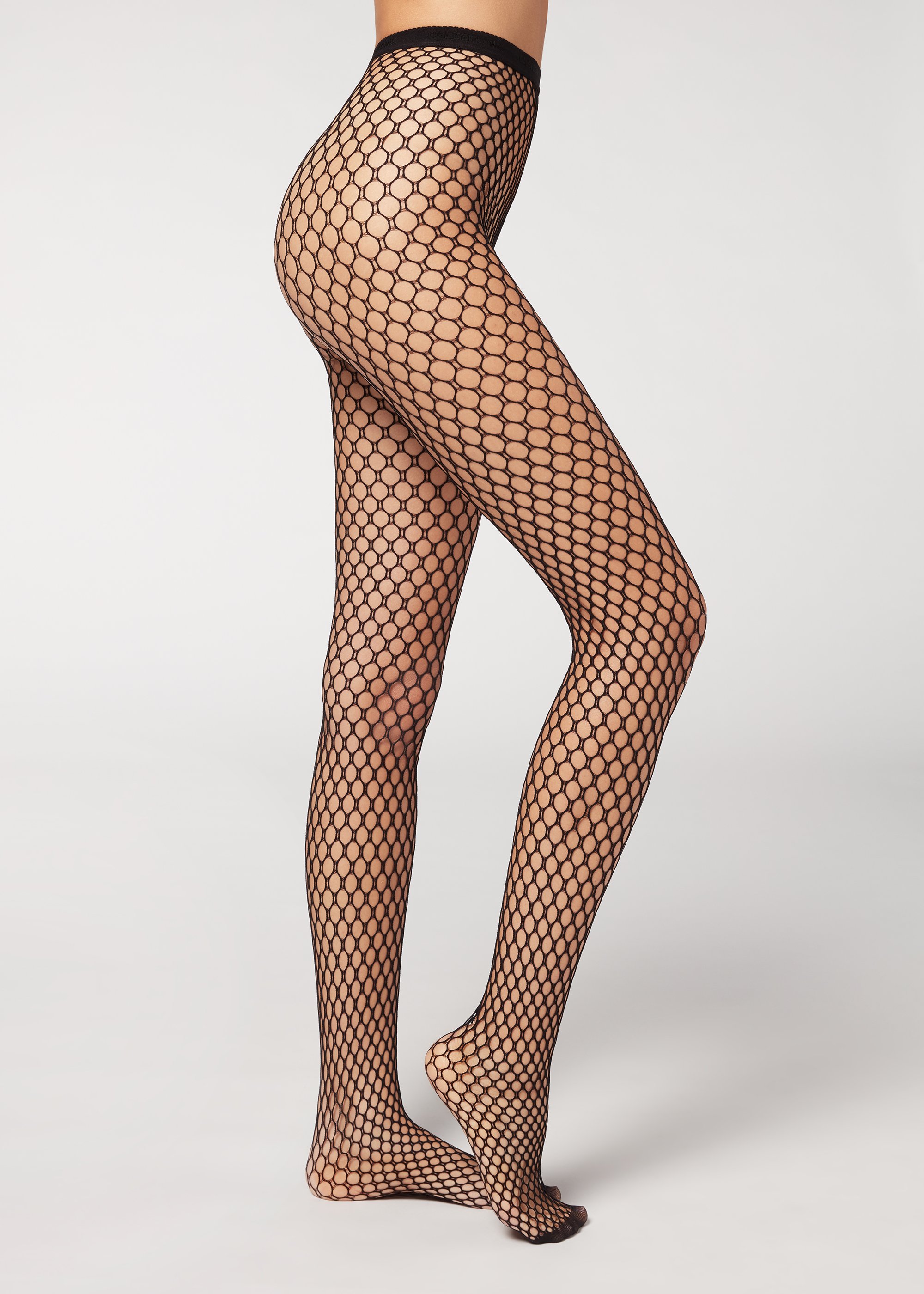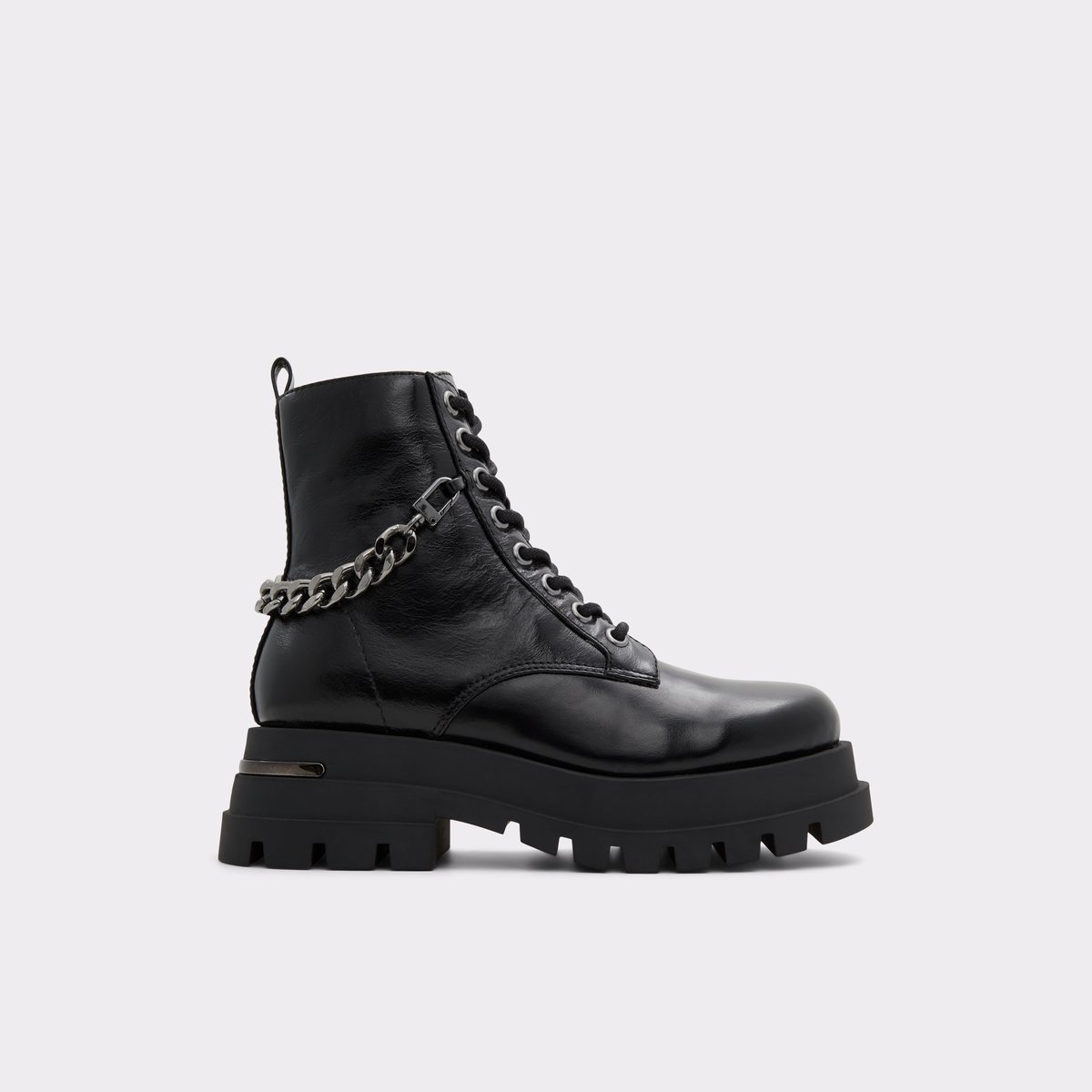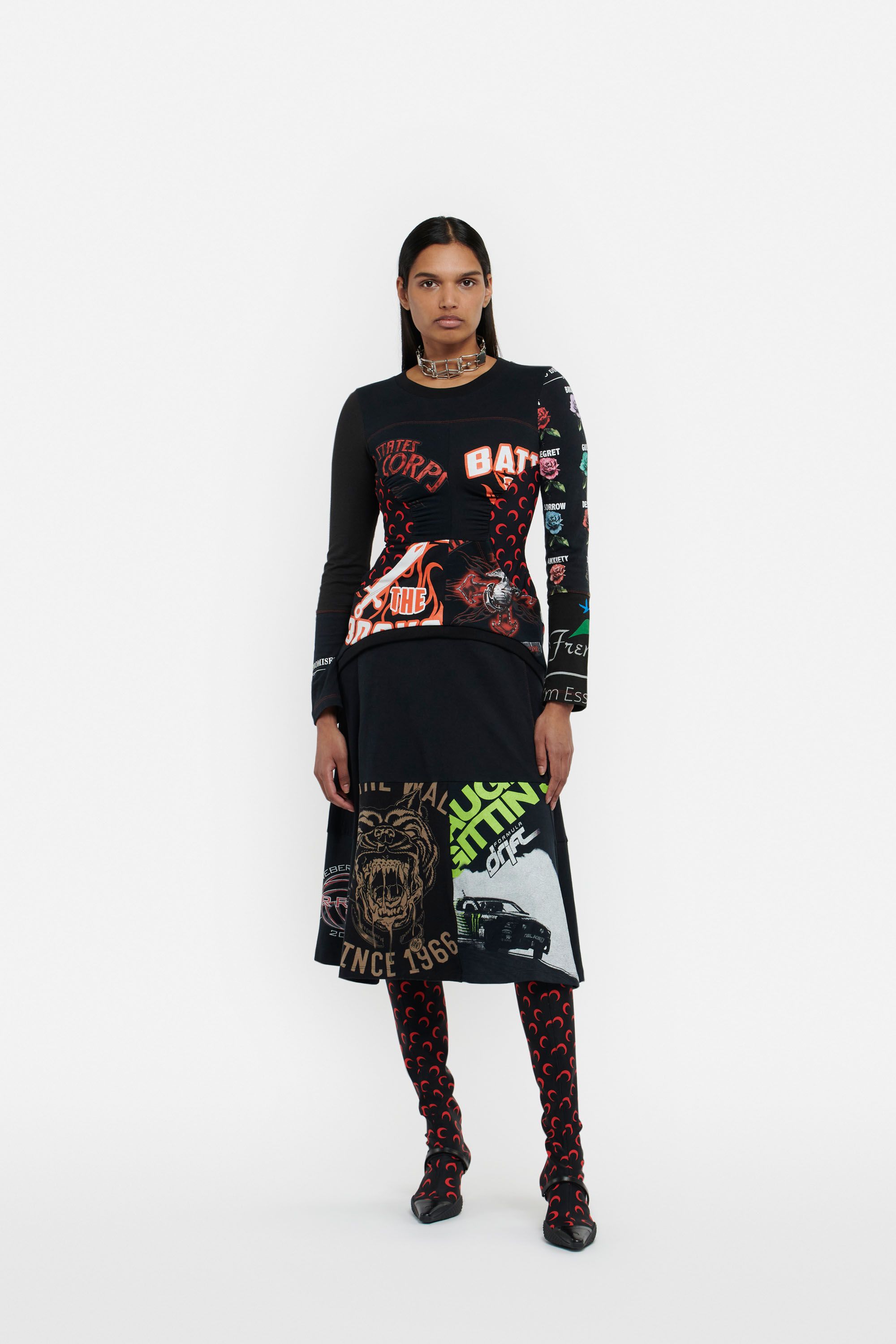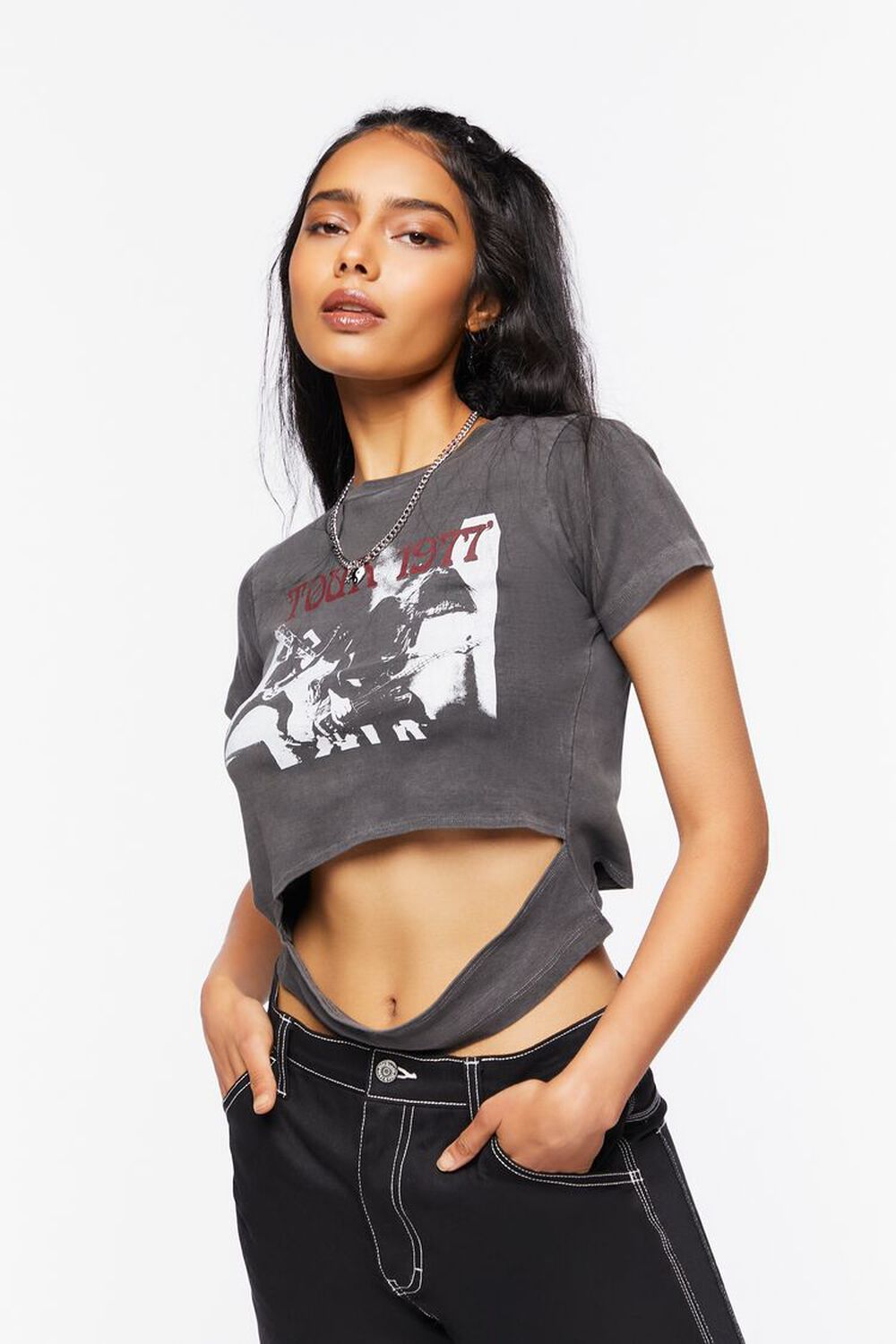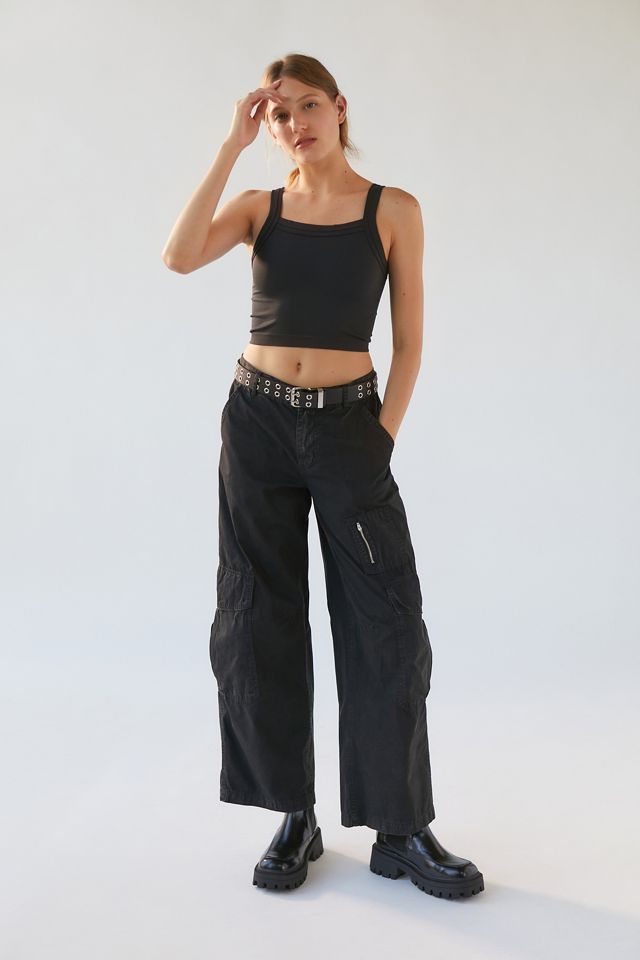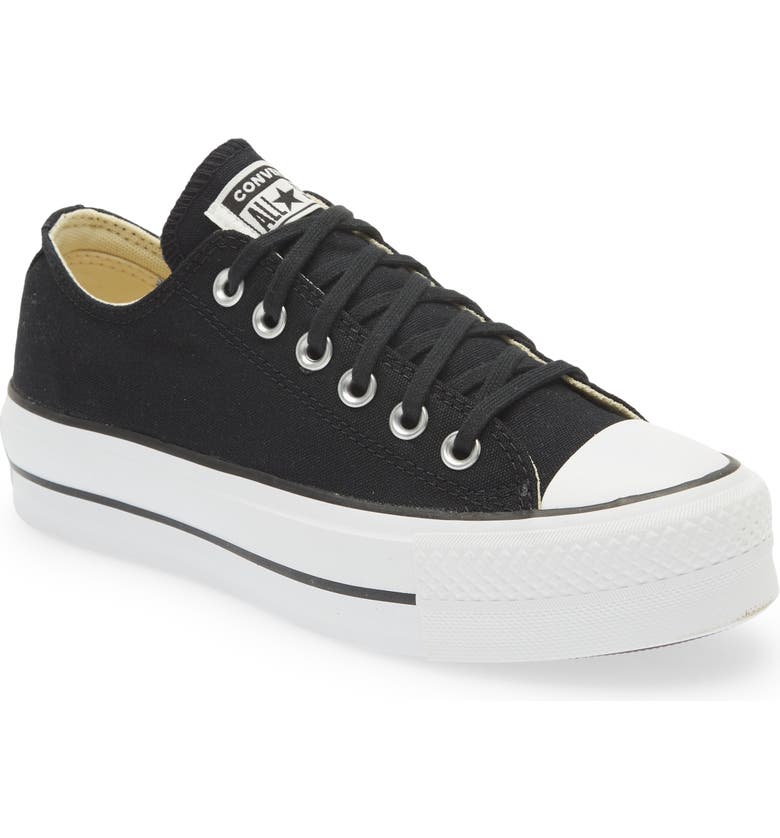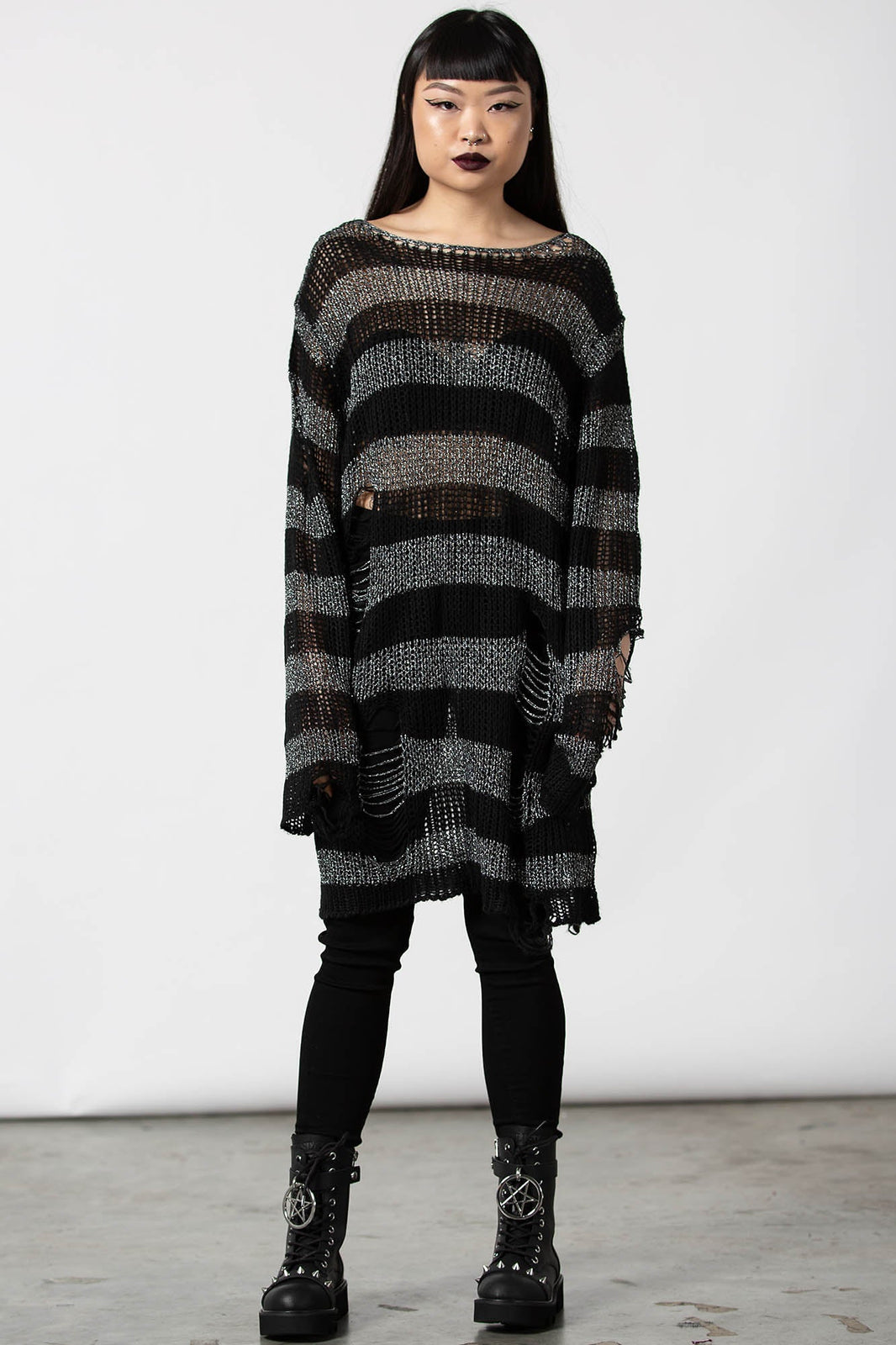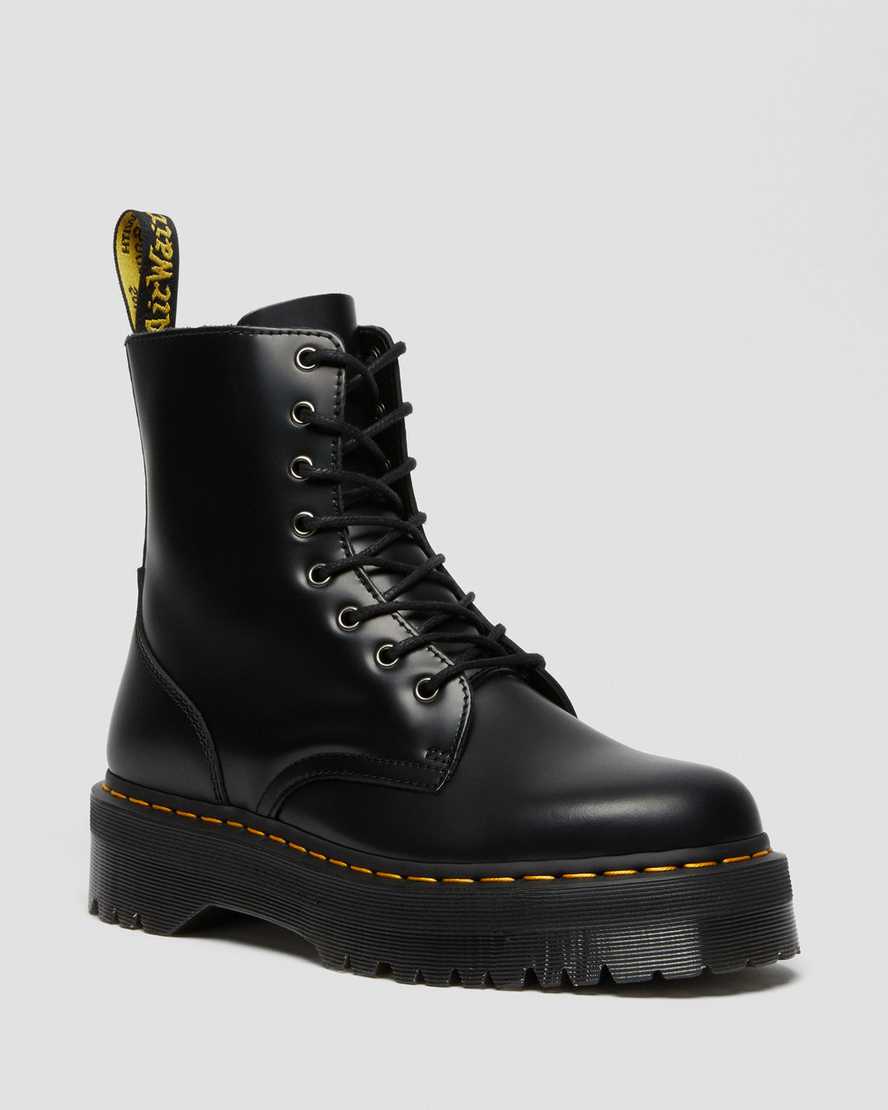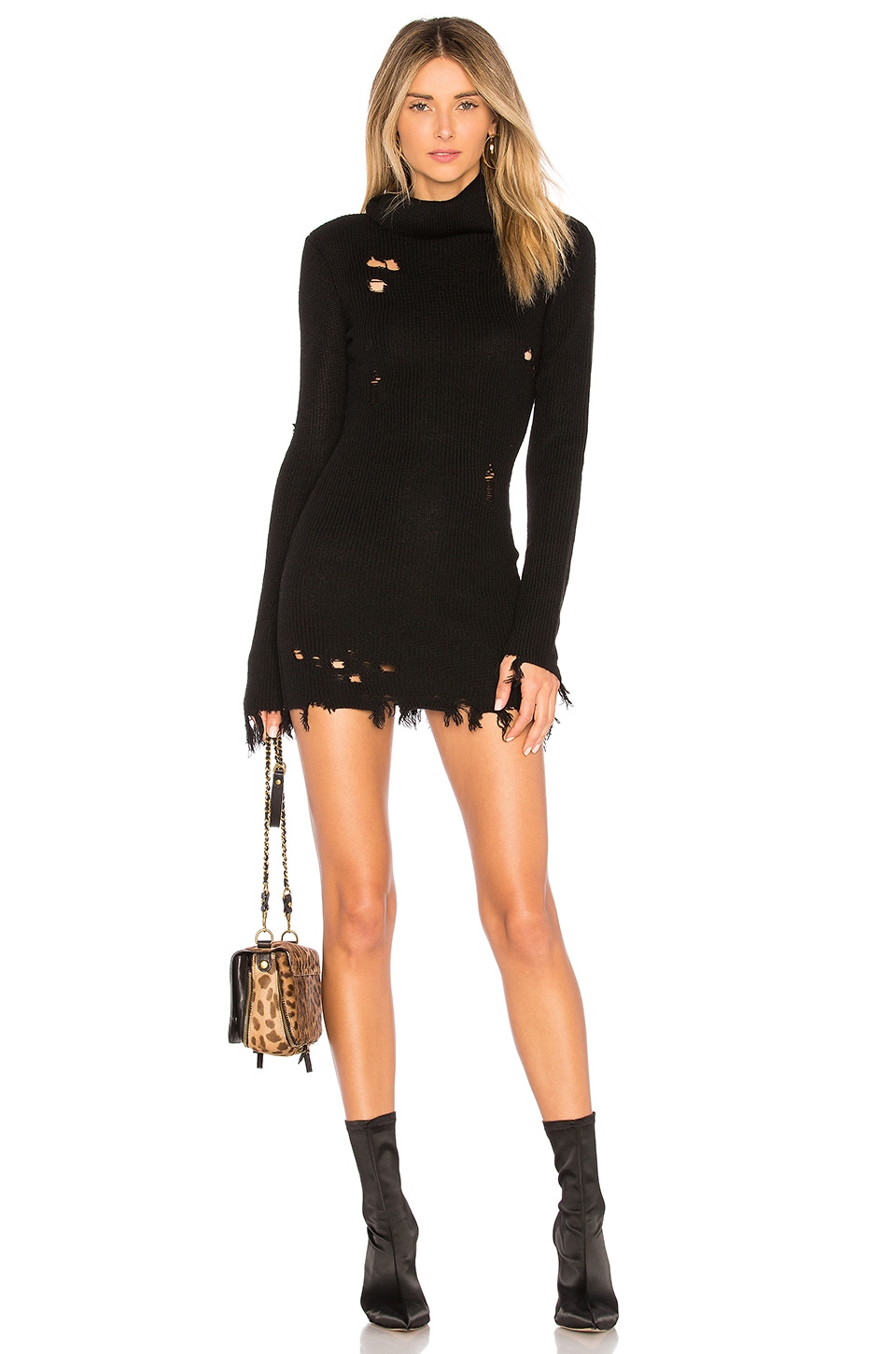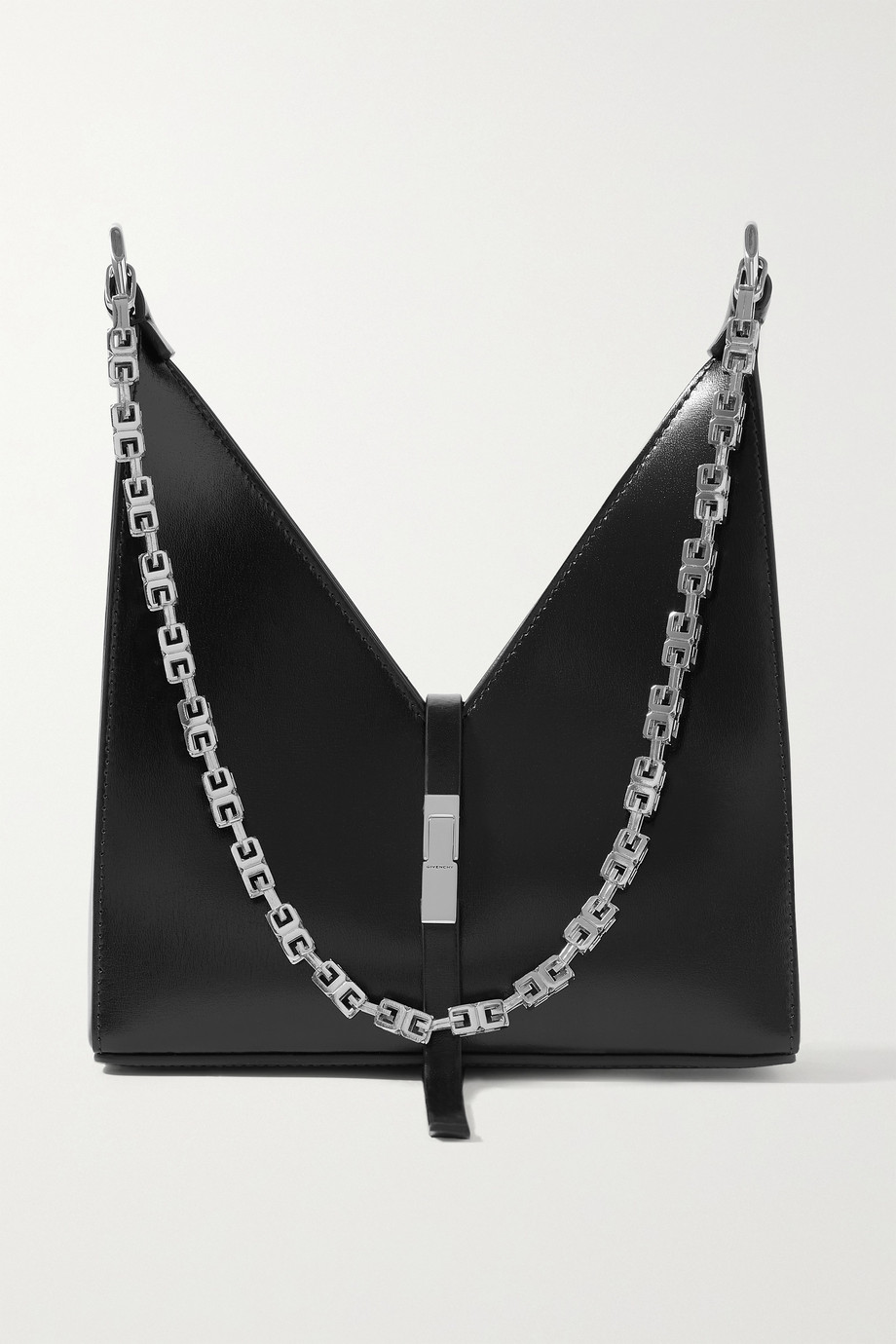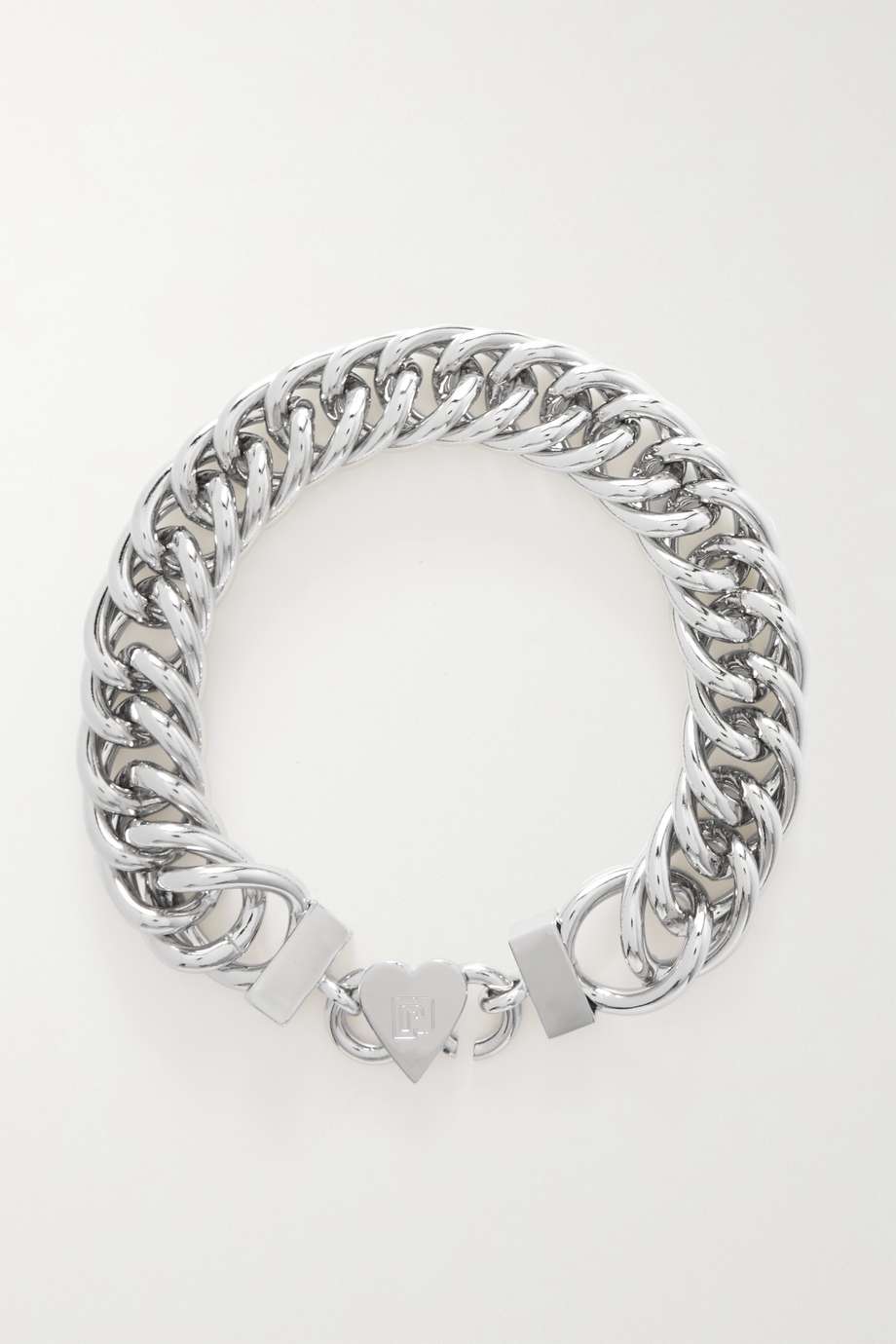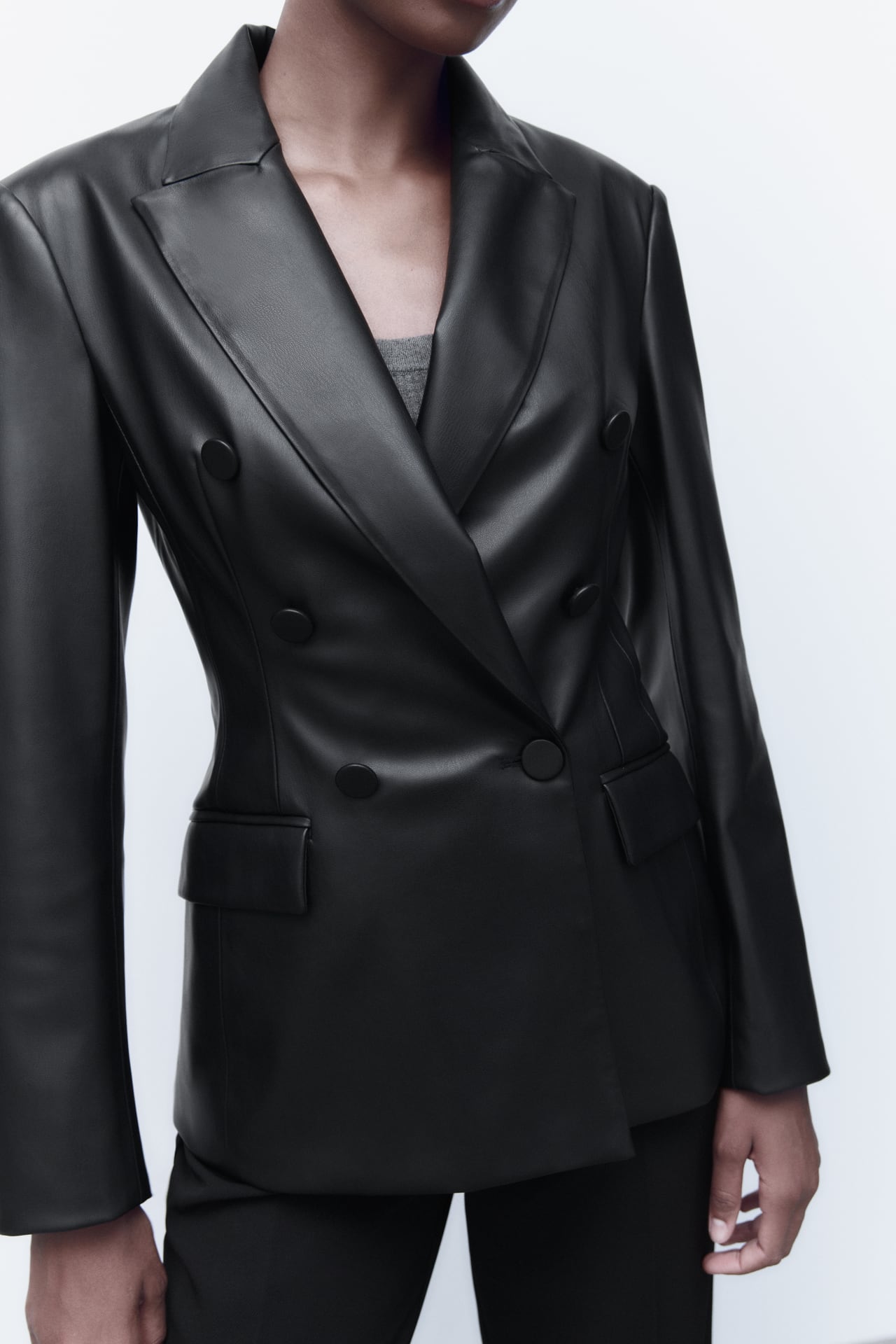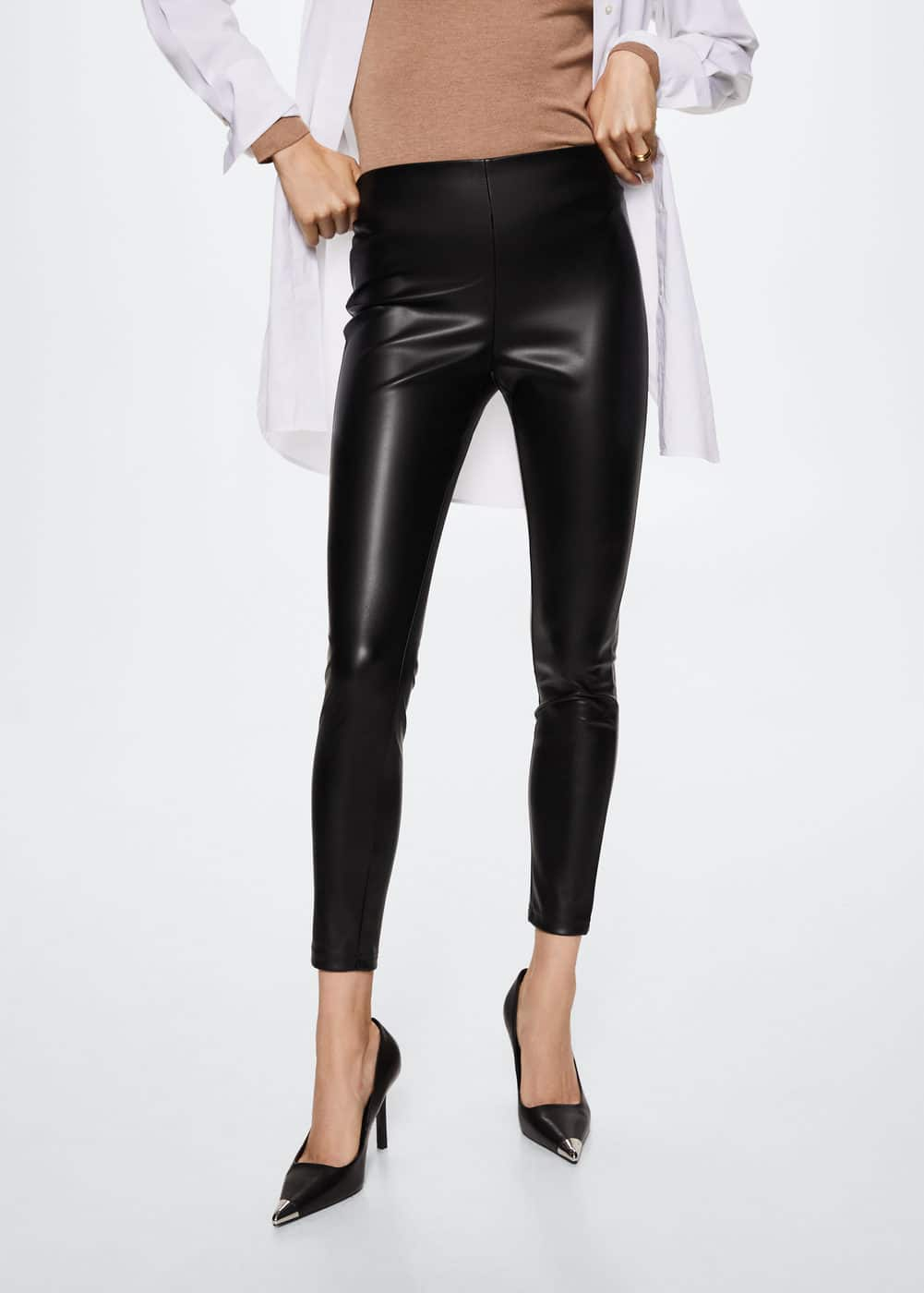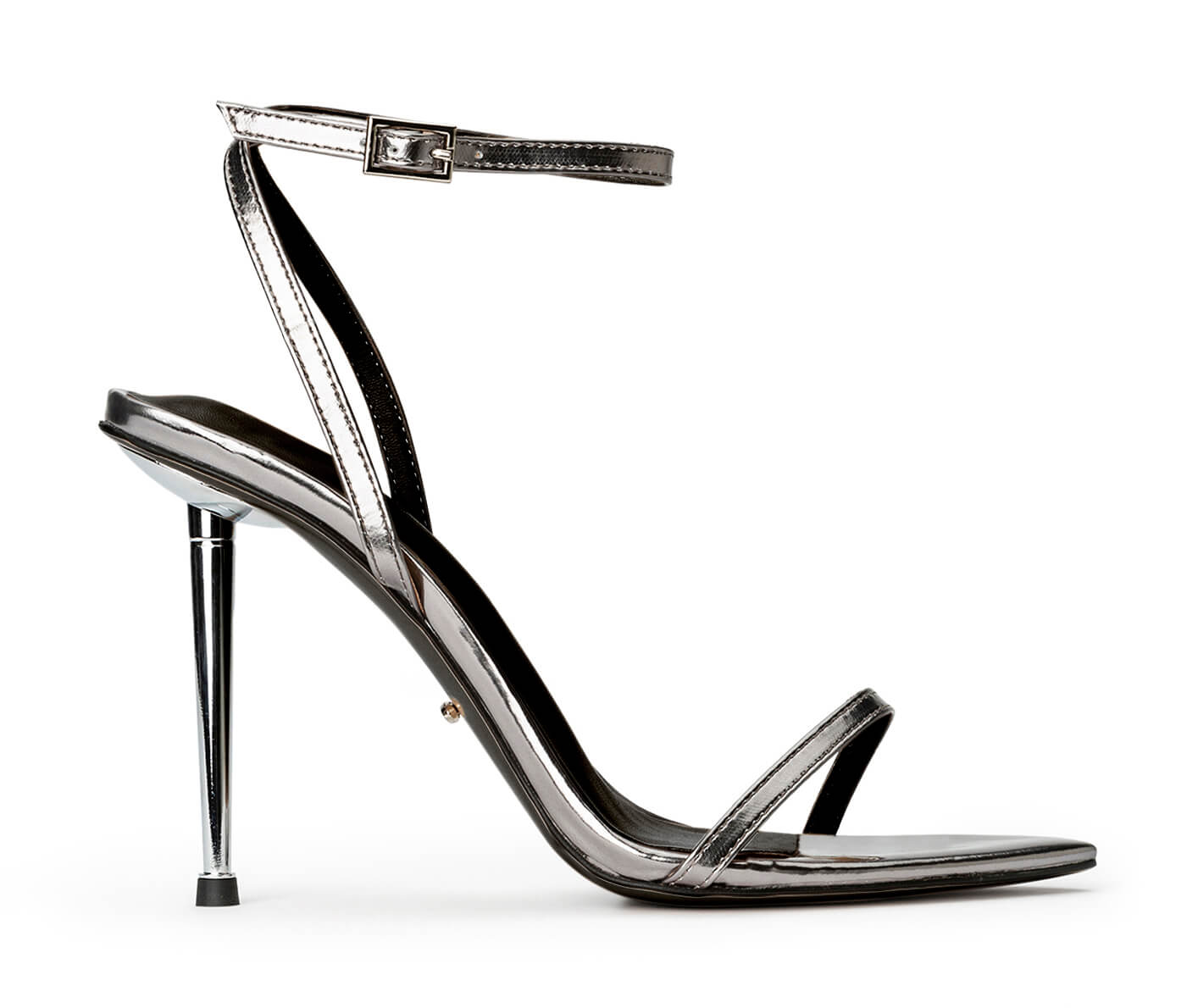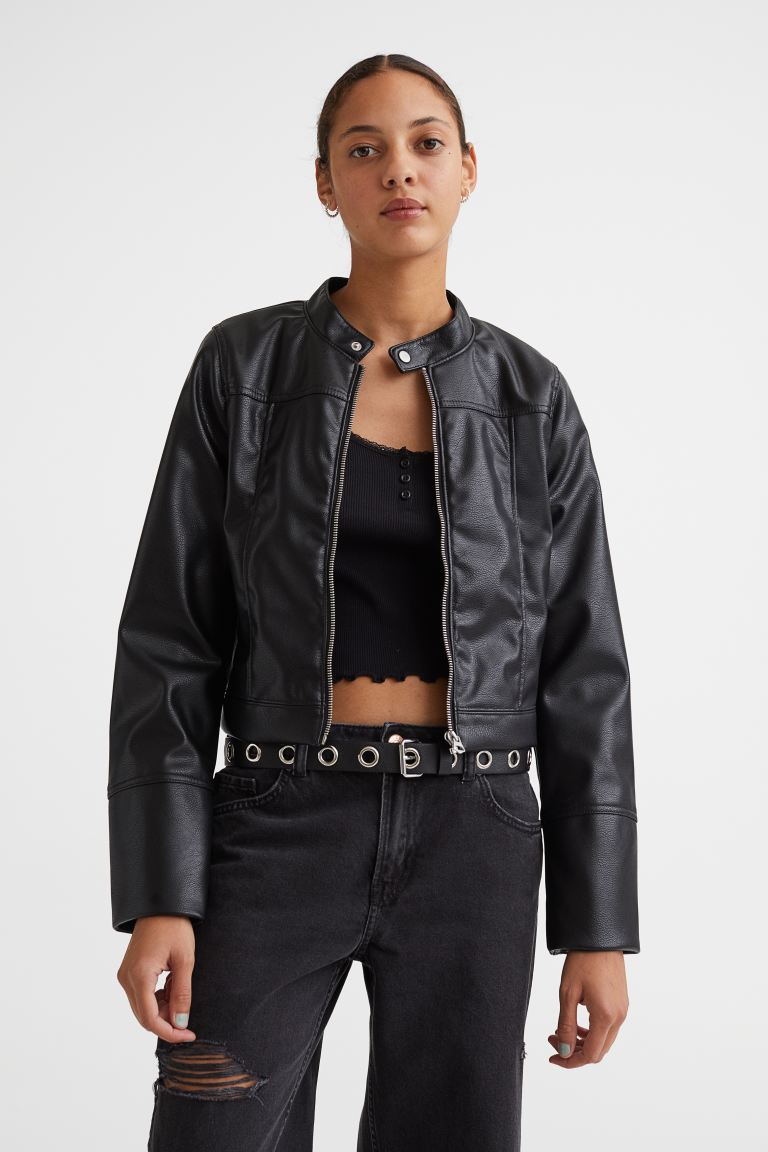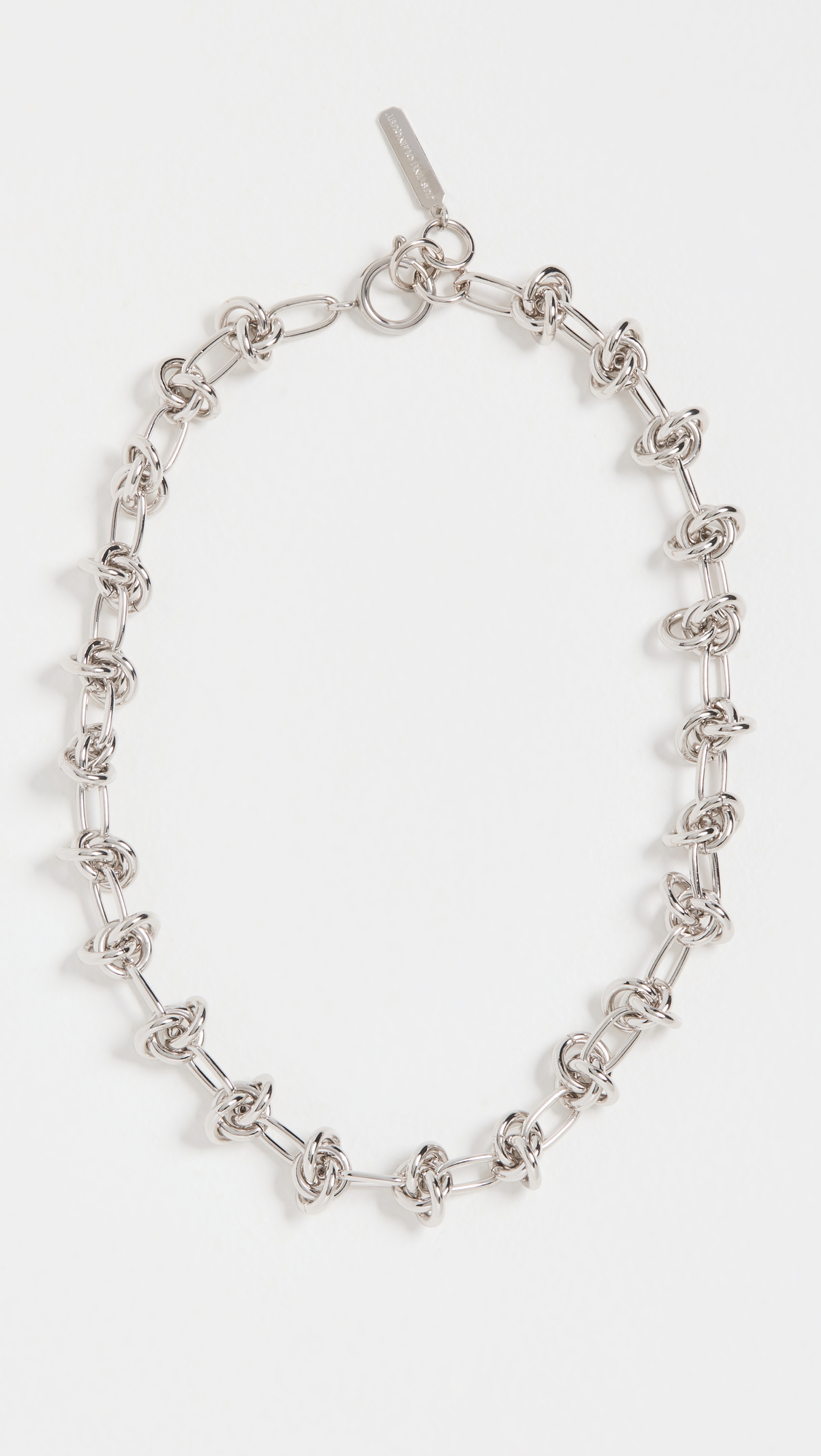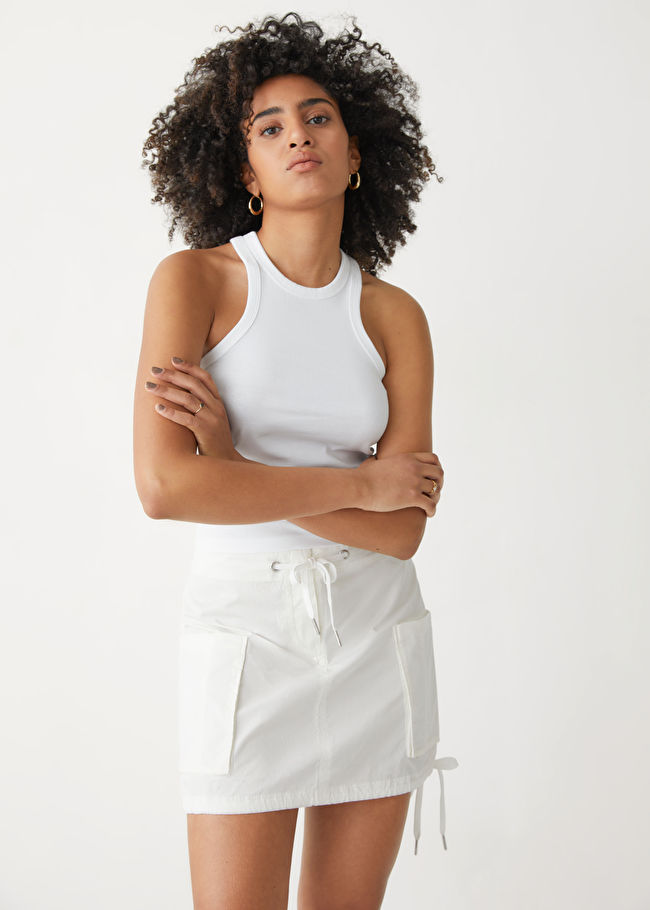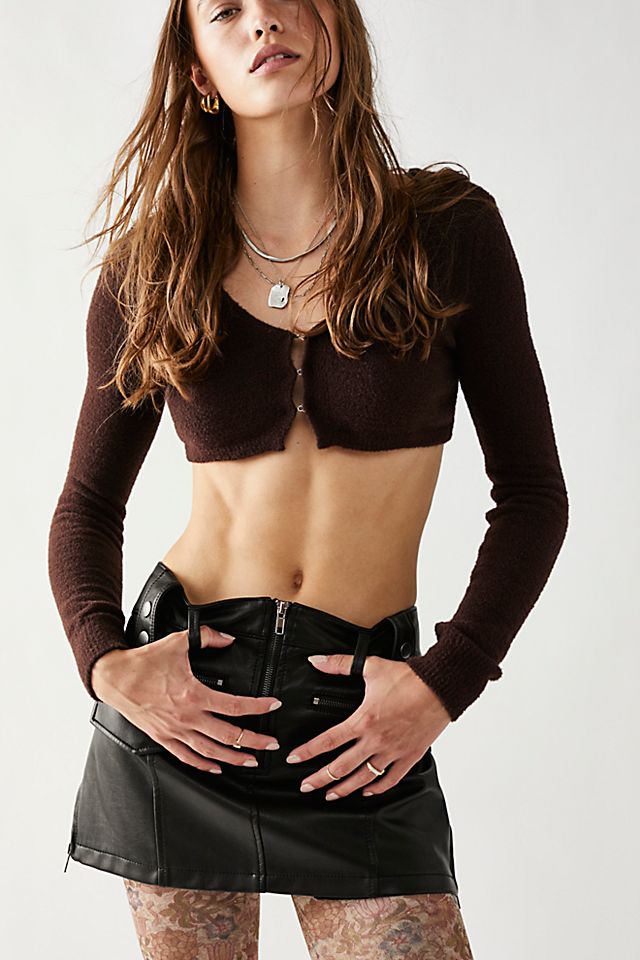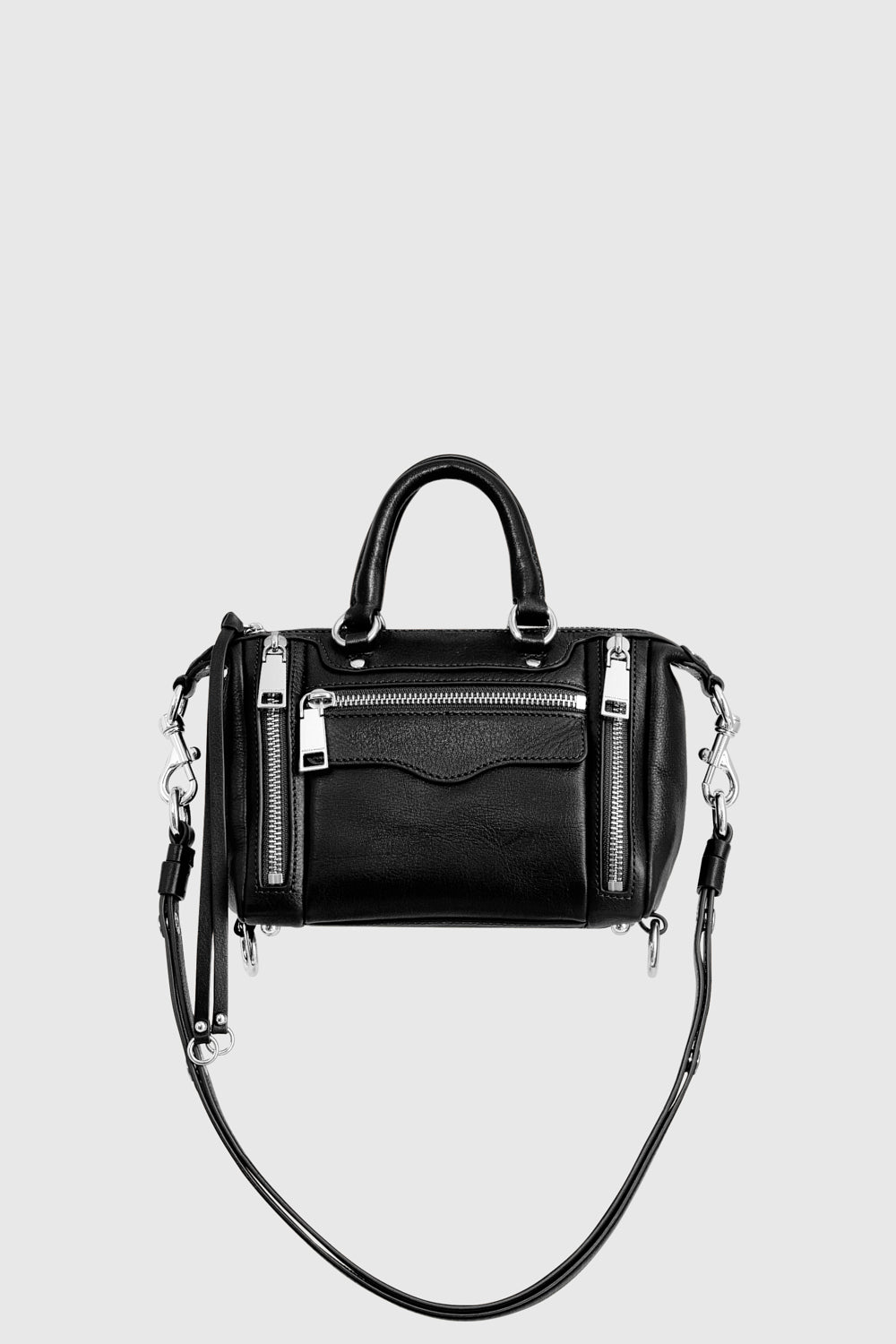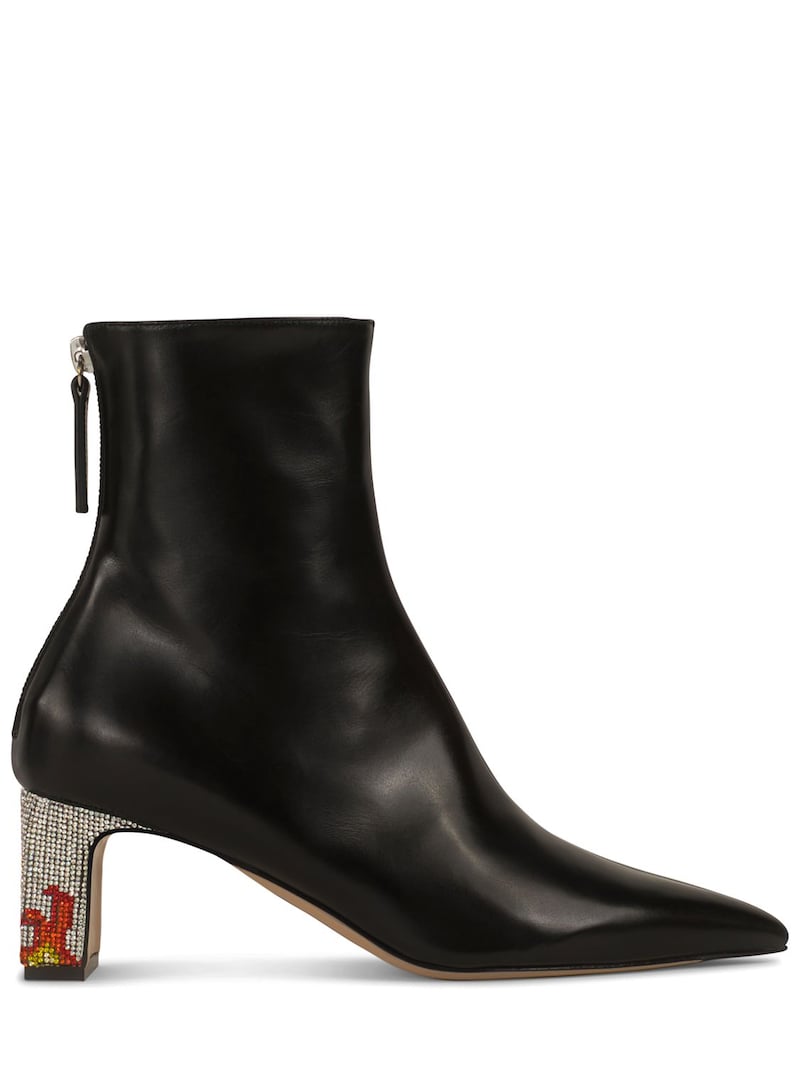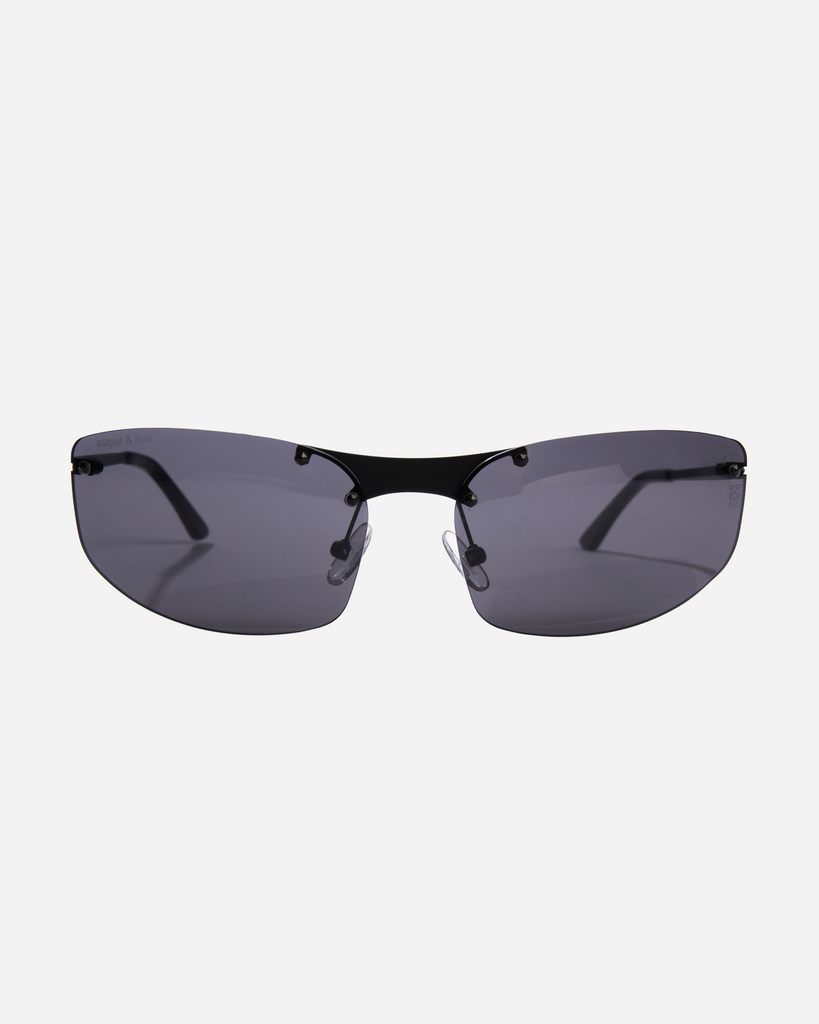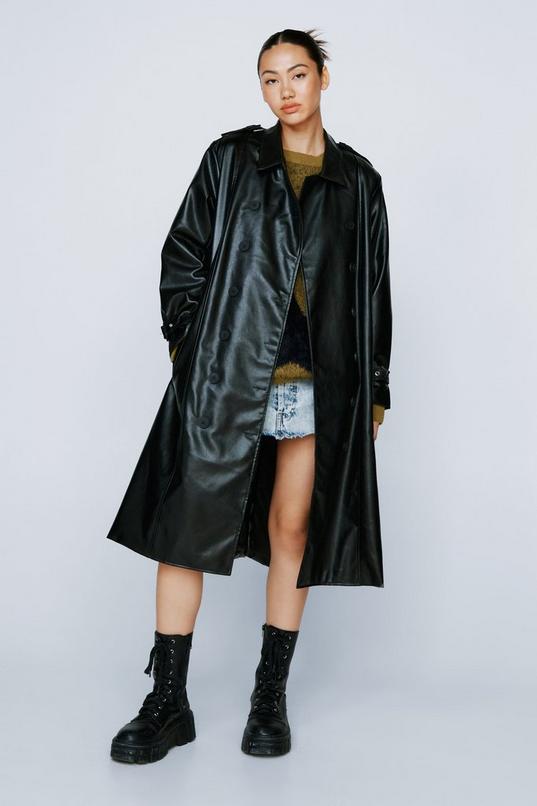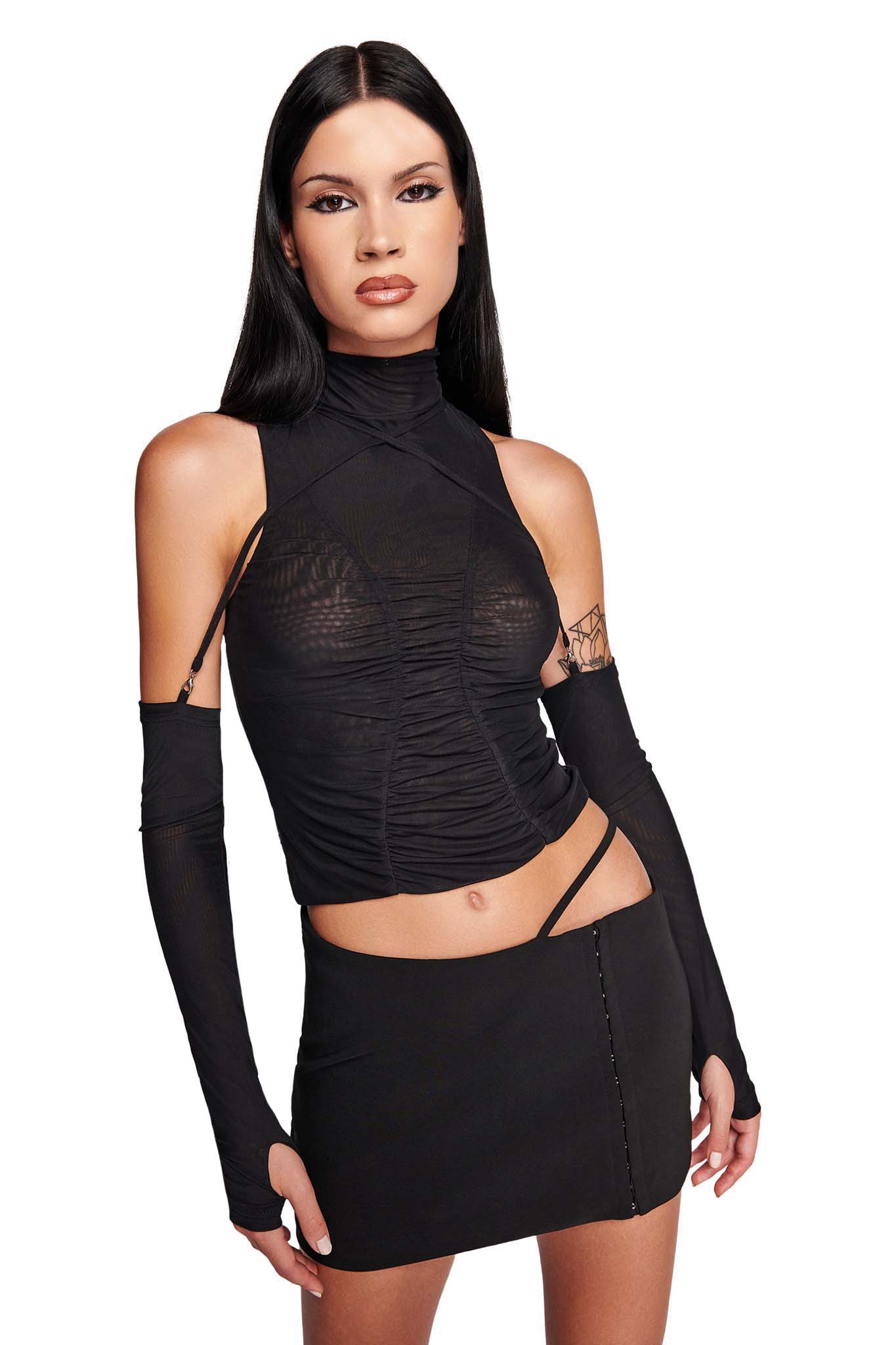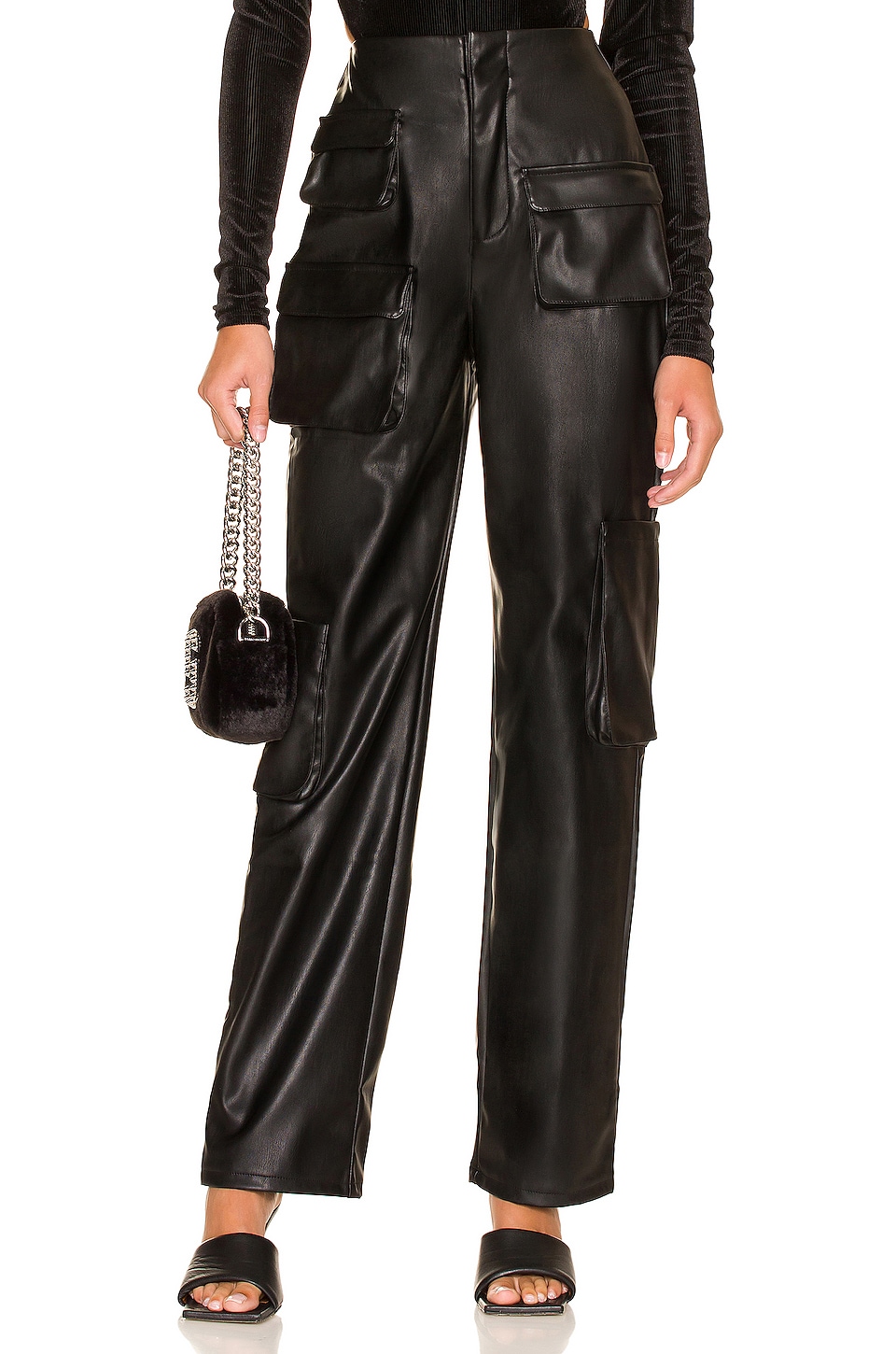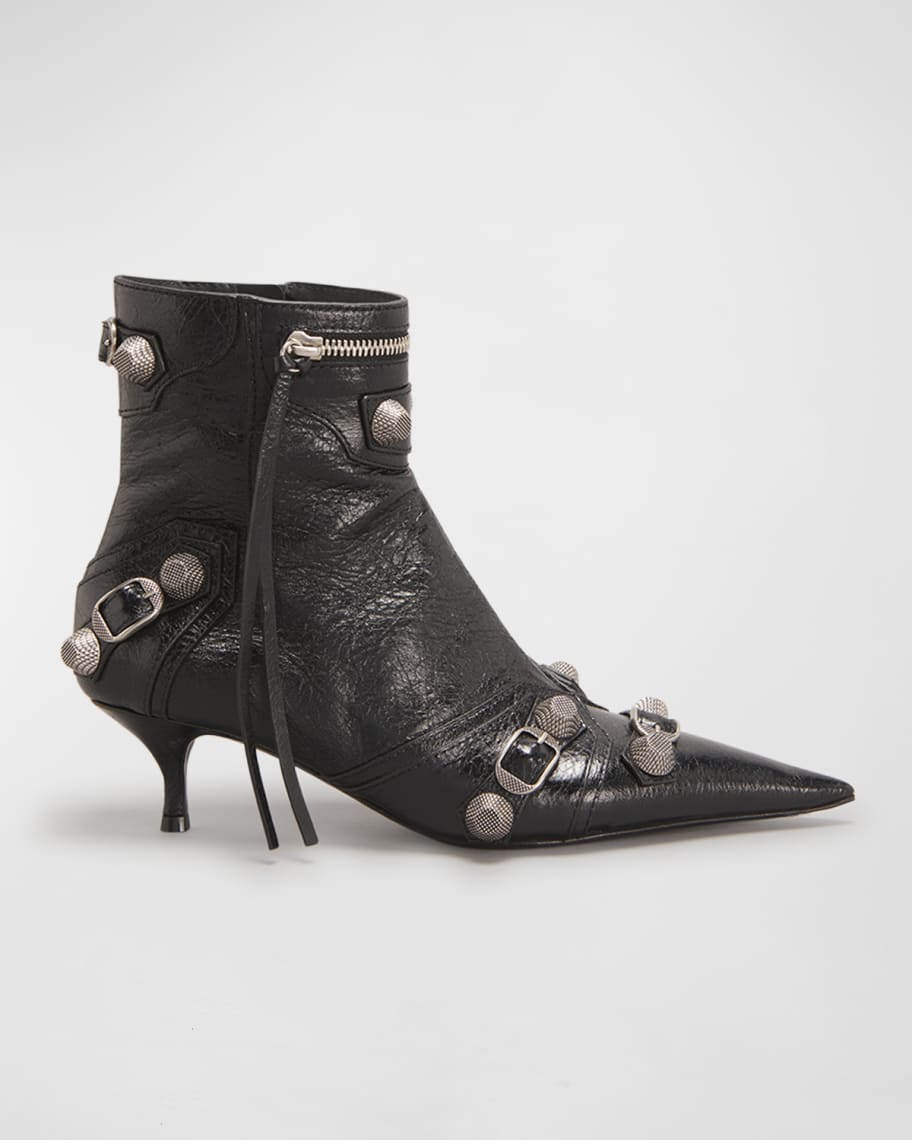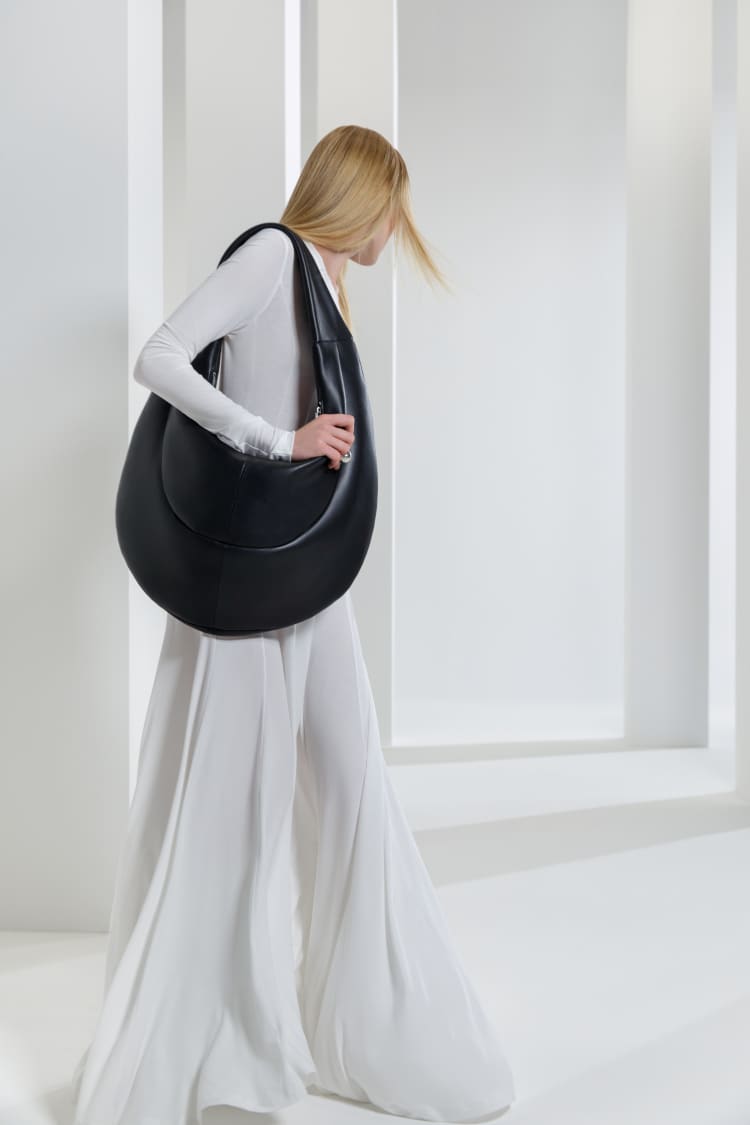Alt-Girl Fashion Has Gone Viral on TikTok—Here's What You Need to Know
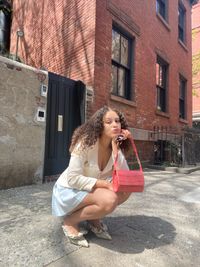
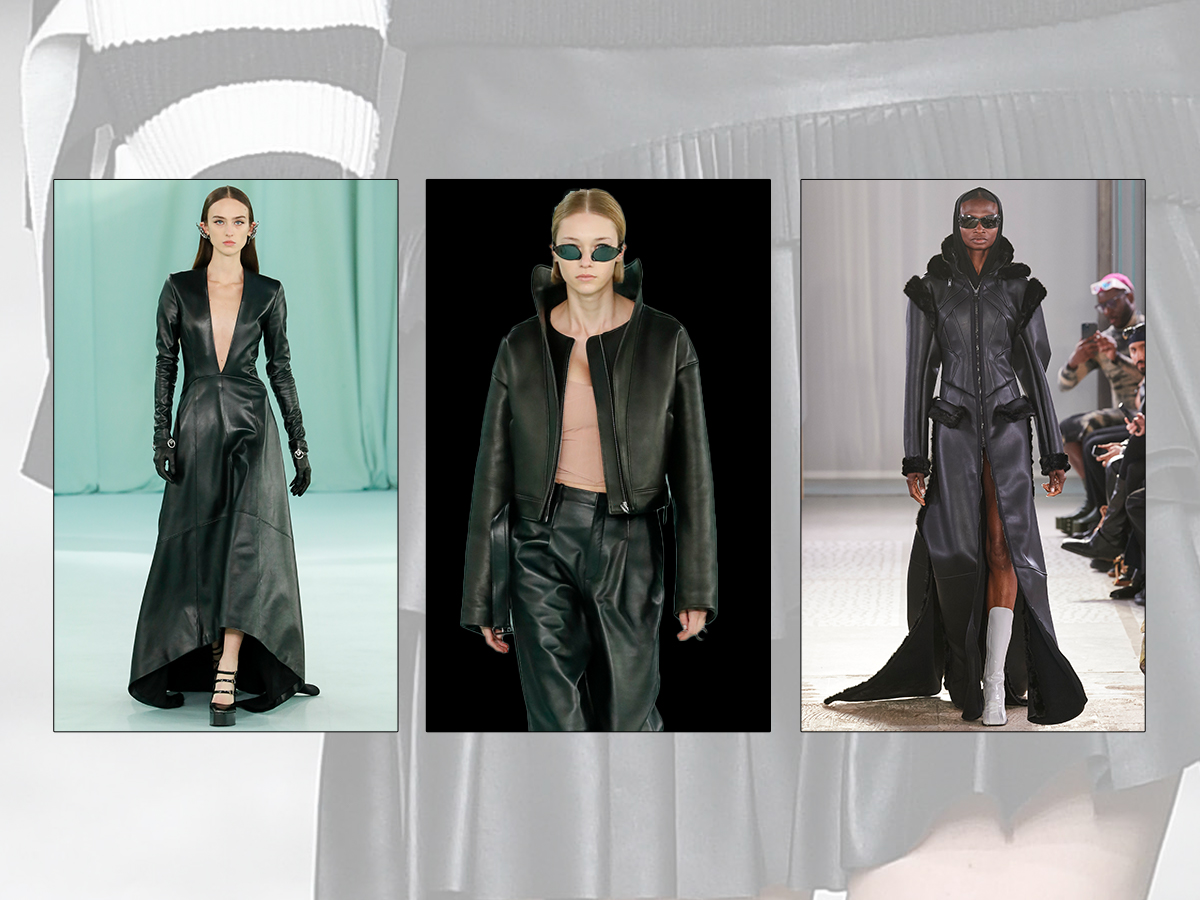
Trends don't magically appear in the zeitgeist; they can always be traced back to a pivotal moment. It could be the debut of a runway collection, the start of a political movement, a sensationalized pop culture event, or a viral phenomenon on social media—whatever that moment is, it can infiltrate and influence what we choose to wear in ways we'd never imagine. Clothing can tell us the story of where the culture is at large because the collections are often a culmination of what's happening in the world. And while all trends can clue us in to the collective's psyche, none speak to how we're feeling right now more than the rise of alt-girl fashion.
Suppose you had the clairvoyance to predict we'd be dealing with a global pandemic, climate change, and the deterioration of democracies worldwide; in that case, you might have seen the whole alt-girl fashion aesthetic coming. It's a hard world, after all, and this trend is a reflection of unprecedented times. But to say that systemic upheaval is the only thing that has contributed to the return of alternative fashion wouldn't be the full truth—there are a few other forces at play here. So I've done a deep dive to define what alt-girl fashion is and show how recent runway collections and cultural phenomena have made this aesthetic come back. Keep scrolling to get the full scoop.
What Is Alt-Girl Fashion?
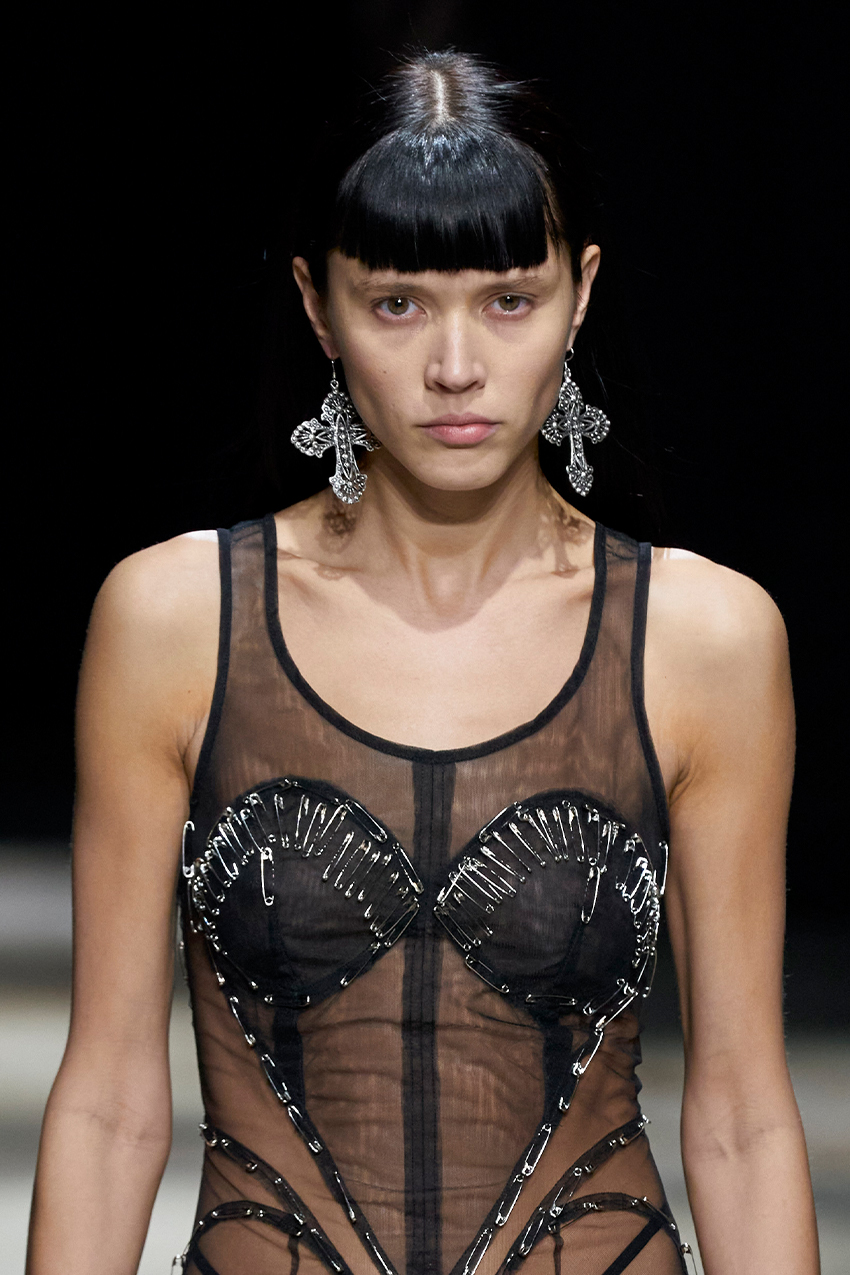
Style has always been a tool for marginalized communities to subvert oppression, and no other fashion movement more clearly rages against the machine (aka, the mainstream) than the rise of alternative fashion. Many people may know alt fashion because it's viral on TikTok, but this aesthetic has more history. Alternative style has long defined various eras and emerged from multiple subcultures, including goth, punk, emo, and grunge, to name a few. While alt-girl fashion may have started in small subcultures, its impact can be felt everywhere. Alt-girl fashion's comeback can be attributed to a cornucopia of events, from the obvious "angsty" reaction to the state of the world to subtler influences.
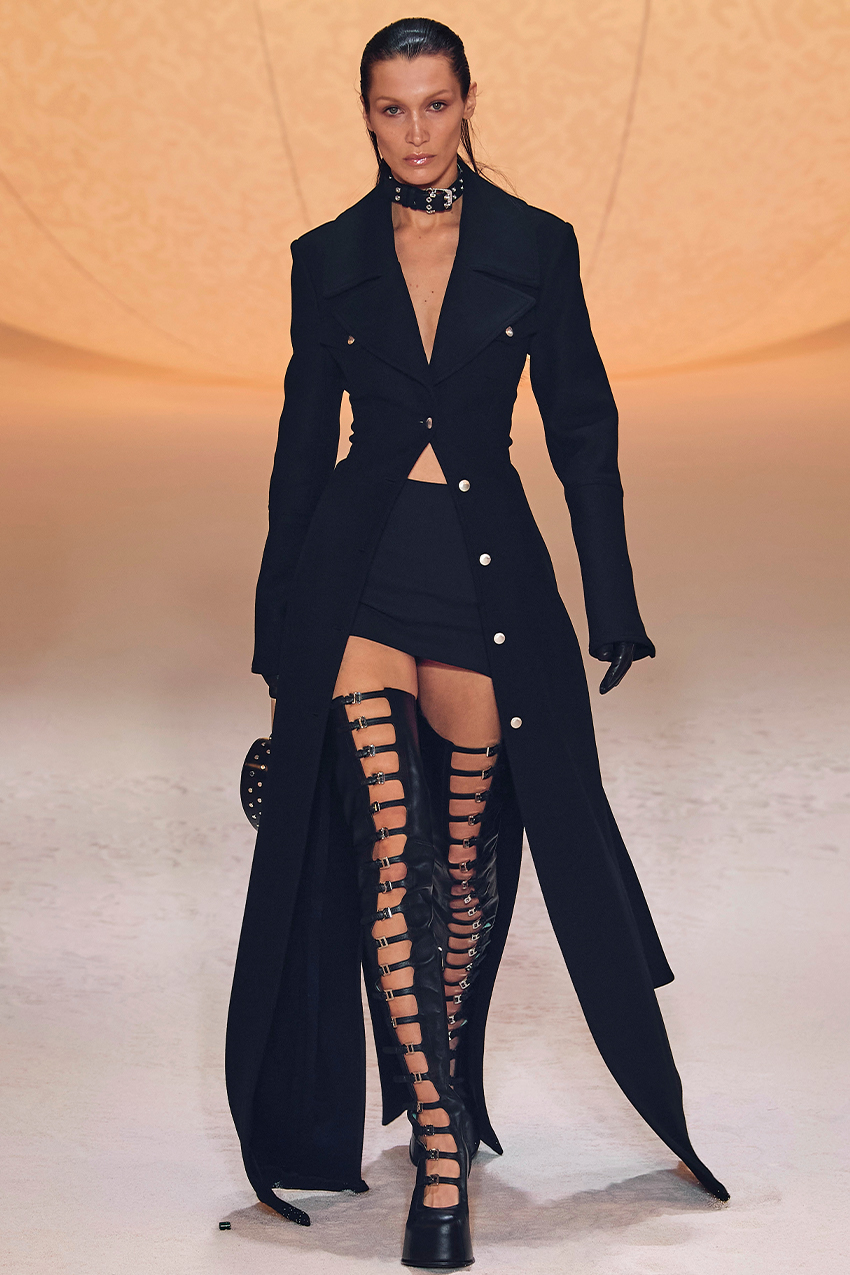
Take, for example, the rise of musicians like Olivia Rodrigo and Rina Sawayama, who have cultivated a new pop-punk sound. Or look at how power couples (think Megan Fox and Machine Gun Kelly) have recently popularized alternative fashion on the red carpet. Or scroll through TikTok and search "alt-girl fashion" or "villain era," and see how conversations around deviating from the mainstream are dominating right now. But possibly the most unambiguous indication that this aesthetic is back are the F/W 22 runways. Ahead, we've highlighted how each alternative subculture's style aesthetic has shown up on the runways and shopped out the critical pieces needed to embrace the alternative look.
Alt-Girl Fashion on the Runways
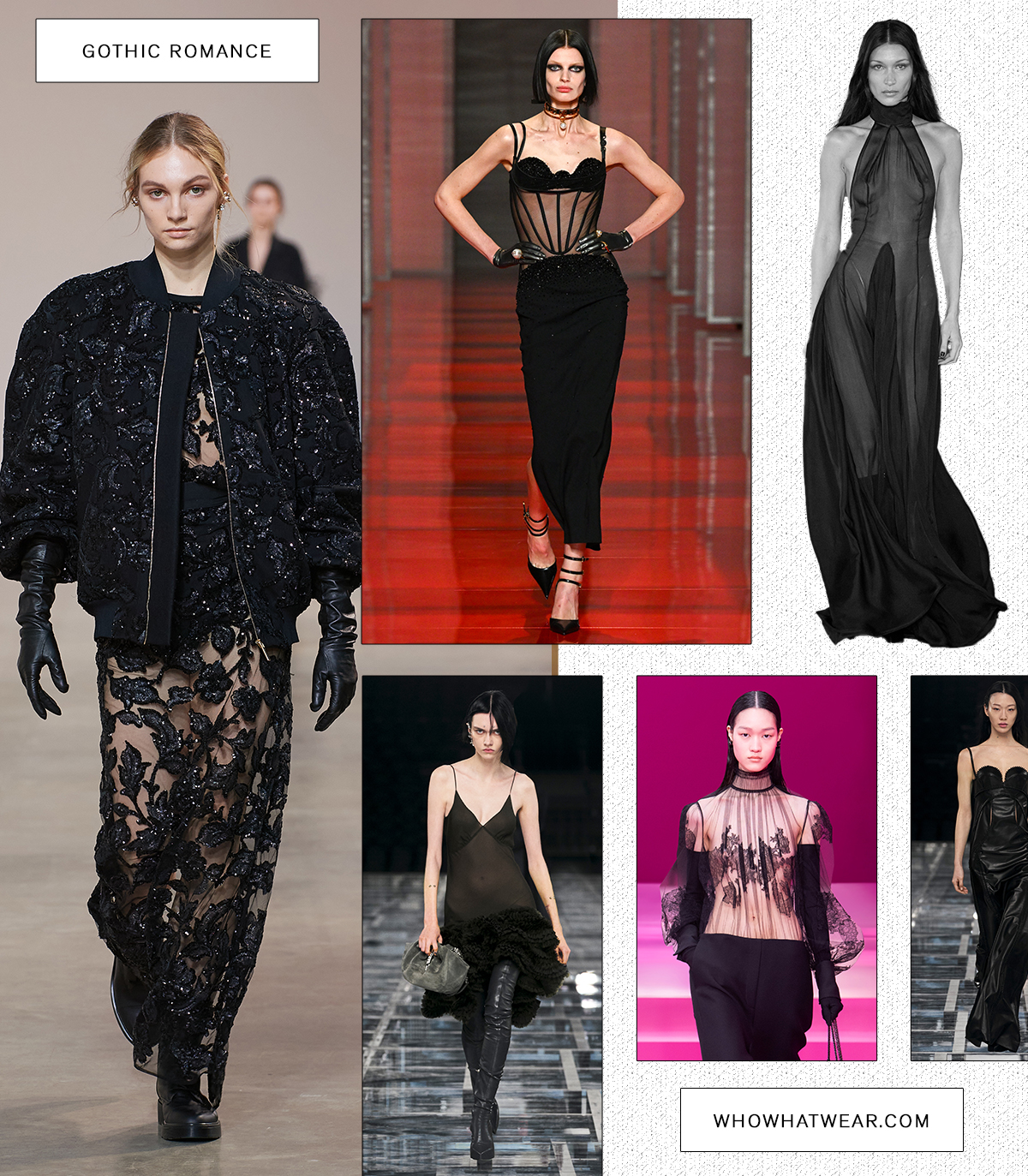
The first-wave alt-fashion trends can be traced back to the mid-'80s with the popularization of gothcore (or, in layman's terms, goth clothing). Goth fashion (and cultural) aesthetics went from subculture to the mainstream thanks to popular bands like The Clash and designers like Yohji Yamamoto and Alexander McQueen. And while the style may have been popularized in more recent history, it's actually an aesthetic that draws inspiration from the Victorian era.
Nineteenth-century England grappled with collective grief as the country and workforce were industrialized while crime and infectious diseases plagued society. That moment in time gave rise to what we now know as the "mourning look" worn to funerals but was also a foundational part of the beginnings of gothcore. Unlike other alternative-fashion aesthetics, goth is characterized by only all-black outfits, but that doesn't mean it's boring. In fact, the F/W 22 runways proved otherwise.
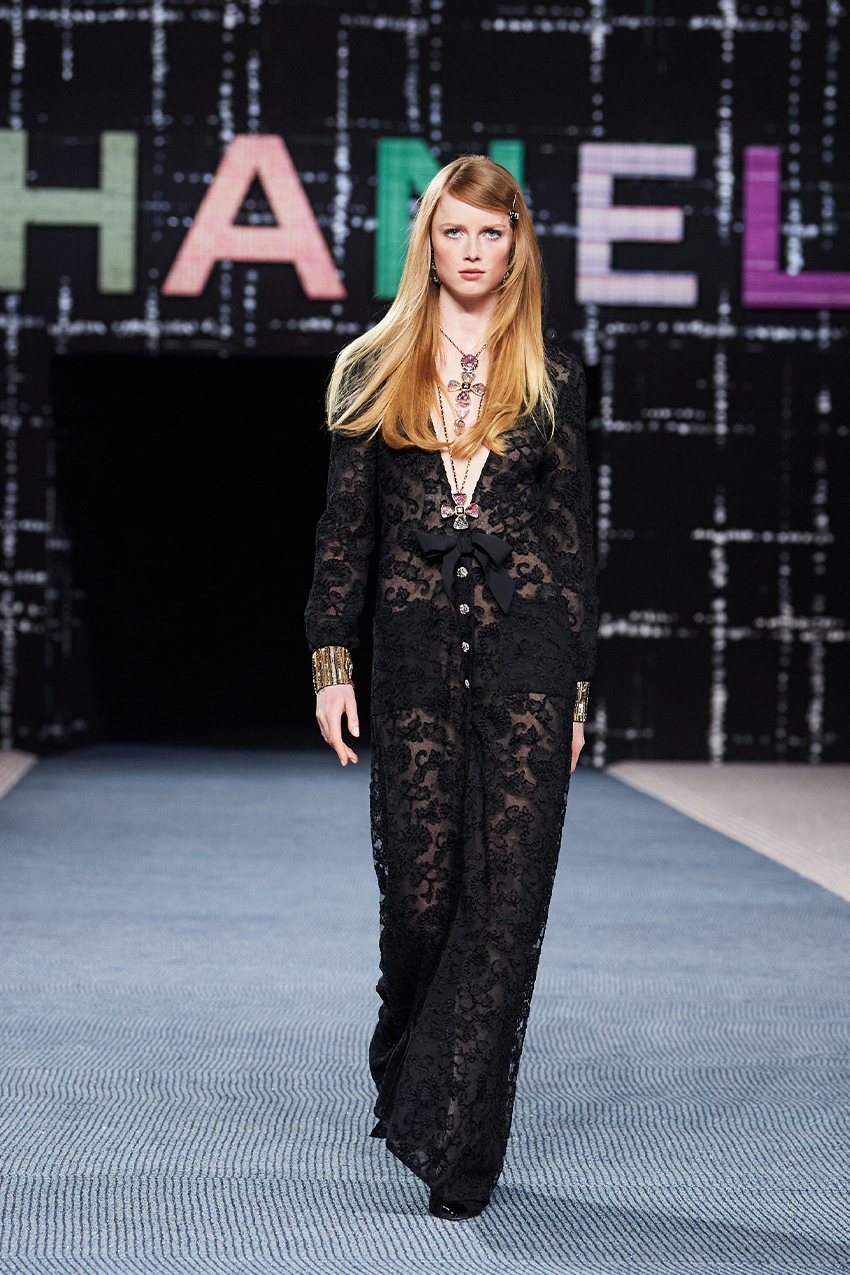
From Versace to No.21 to Givenchy, we saw goth-inspired looks dominate. But what made them goth was all down to the details—all-black looks were given a romantic edge with corsets, lace, and hardware. If that weren't enough, each look was styled with gothic accessories like oversize jewelry adorned with cross emblems, opera gloves, choker necklaces, and platform shoes. Maybe I'm a sucker for a dark romance, but considering how utterly divine the runway looks were, it's easy to see how one could fall for all things goth-inspired.
Shop goth-inspired pieces:
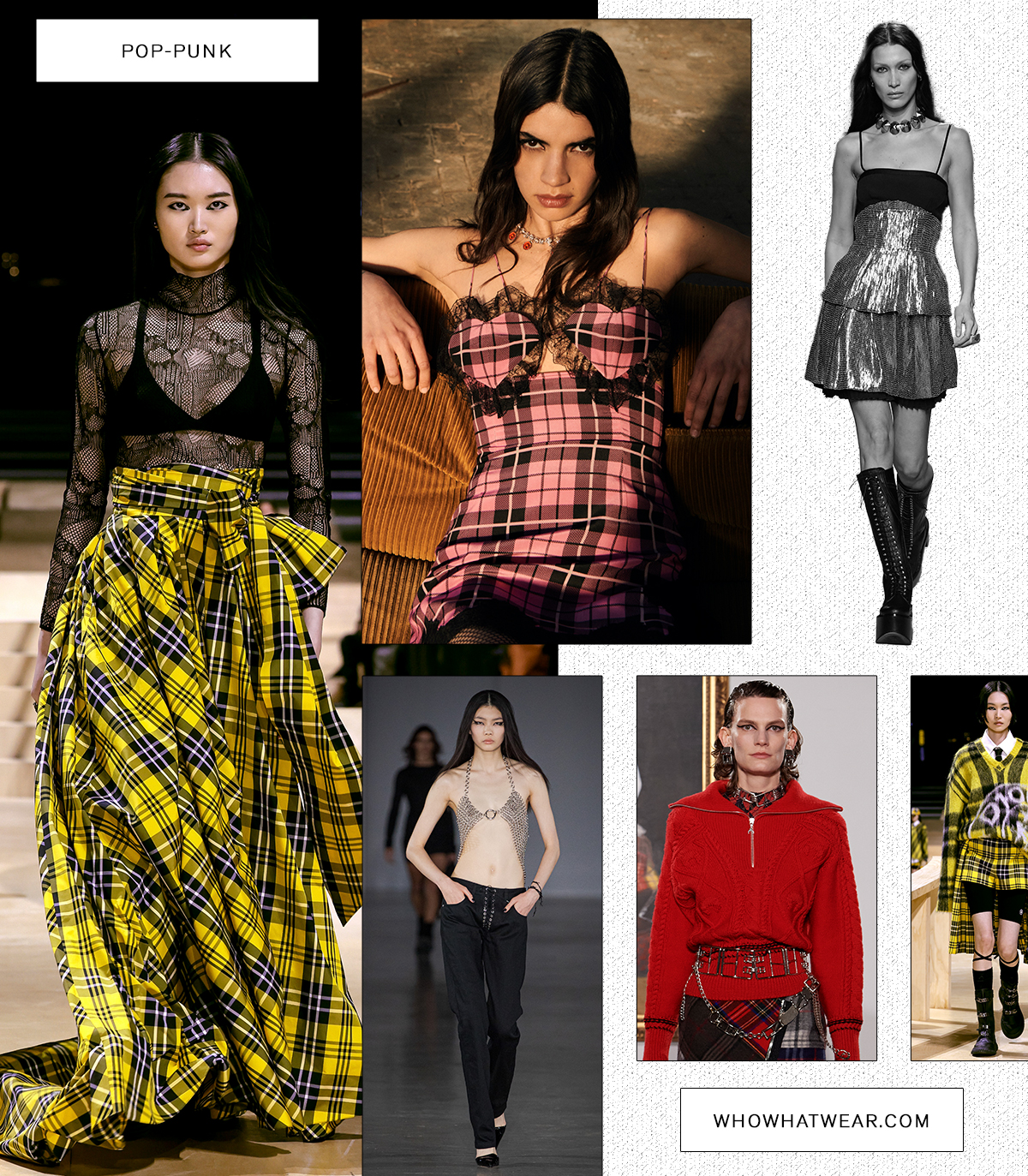
With the rise of gothcore, we saw another alternative aesthetic bubble up in the late '70s through the mid-'80s: punk. But while these two alternative aesthetics rose in popularity around the same time, the subcultures are not to be confused. Punk fashion, culture, and music first became known thanks to the youth in London looking for a way to express frustration with the idealism of former generations and the lack of systemic change. Punk may have entered the chat because of famous bands like the Sex Pistols and the Ramones ruffling a few feathers, but it cemented itself into the culture because it influenced fashion.
Even though some of the most influential designers (like Vivienne Westwood) embraced it, the punk aesthetic is defined mainly as an "anti-fashion" movement. That's clear through the "ugly" staples that define the punk style, like tartan-printed pieces, chunky boots, and bondage-inspired pieces. But it's also evident in thrifted jeans and band T-shirts that were cut up to create overly distressed looks or leather jackets adorned with safety pins and studs. Punk fashion was (and still is) all about causing a stir, and that spirit has continued through the F/W 22 collections.
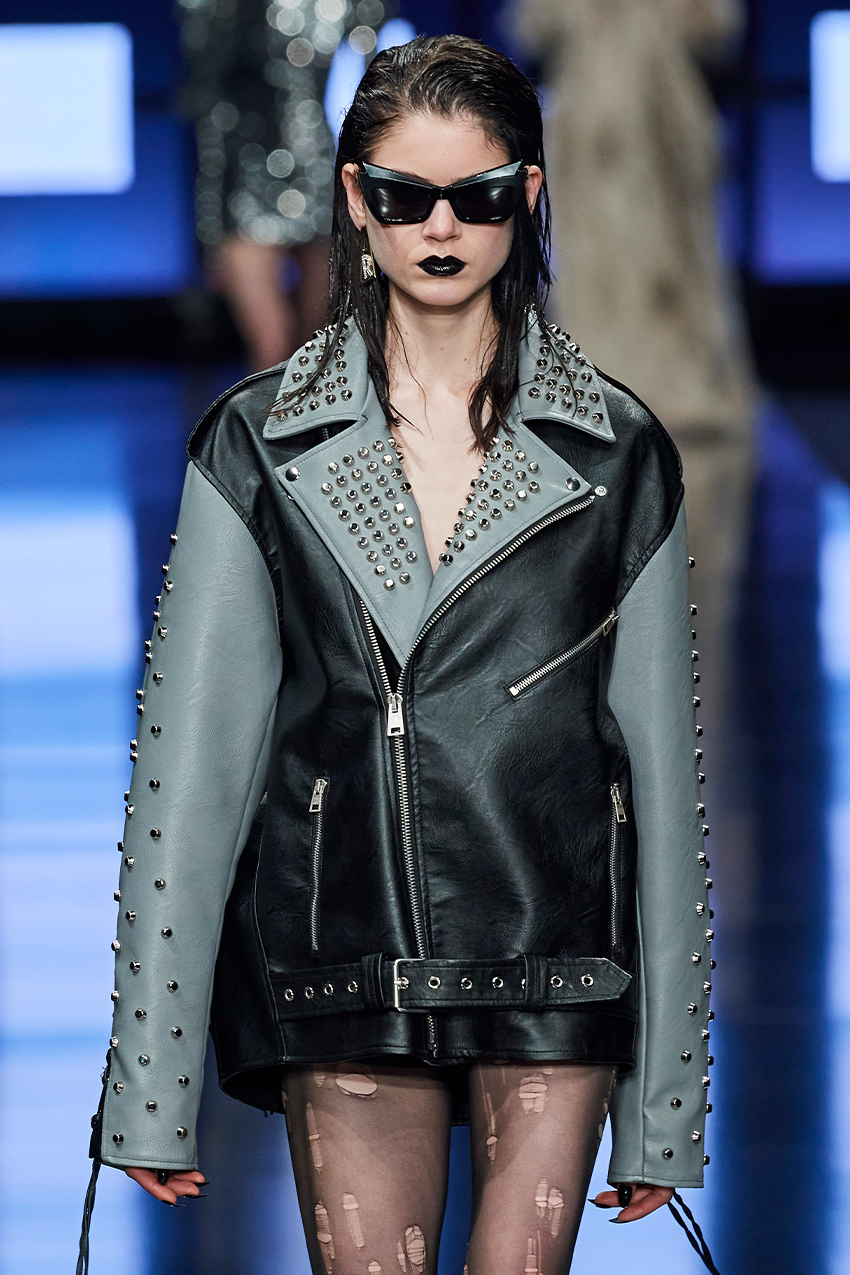
From Dior's pre-fall punk-inspired collection to Aniye Records' stud-adorned collection, it's clear that punk fashion is back. While the punk-inspired looks in fall collections may feel more "pop" since they've got traditionally "feminine" silhouettes, considering how overly feminine aesthetics like Barbiecore have been popular this past summer, this aesthetic still has that edge.
Shop punk-inspired pieces:
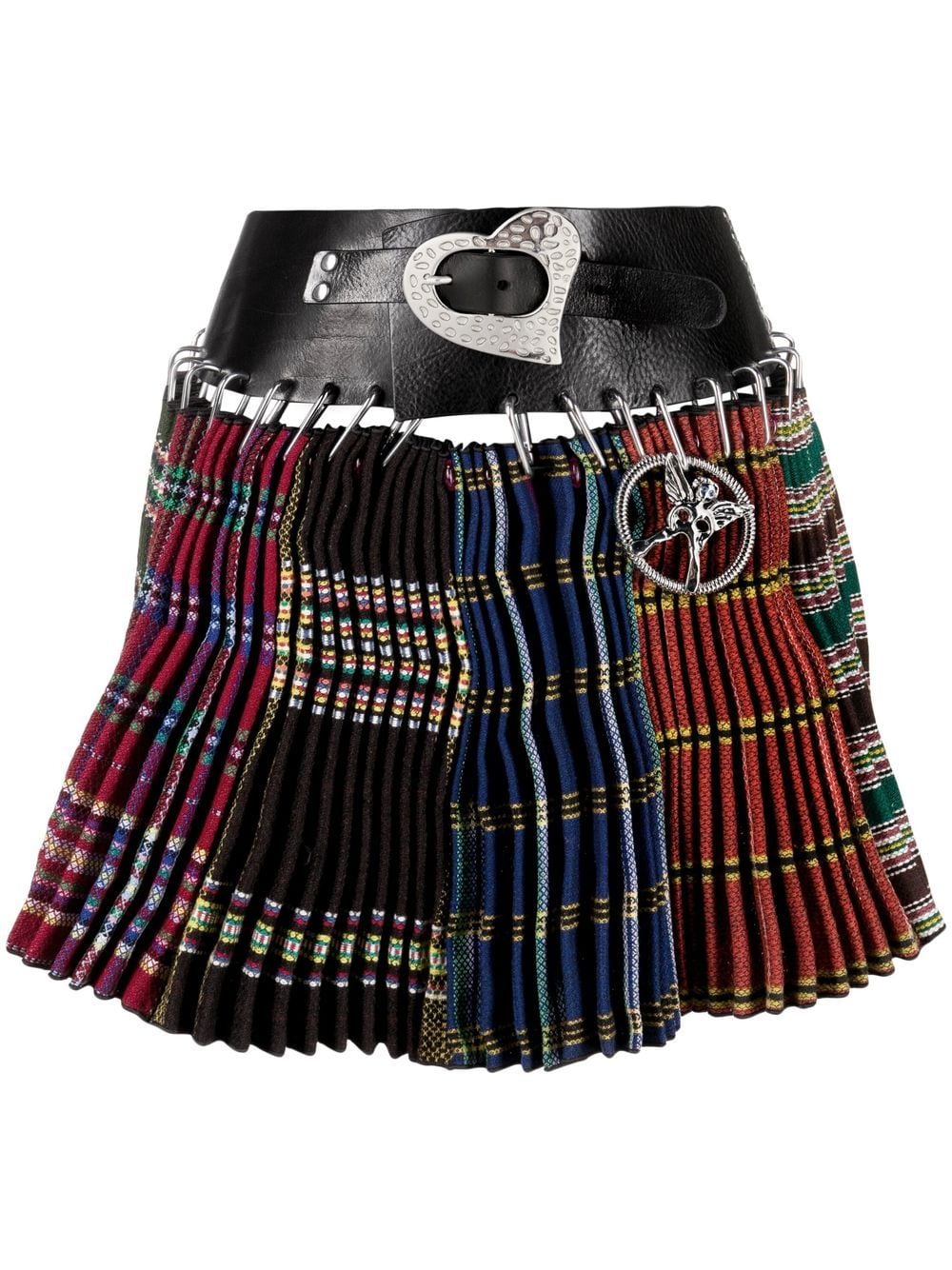
Everything about this is punk.
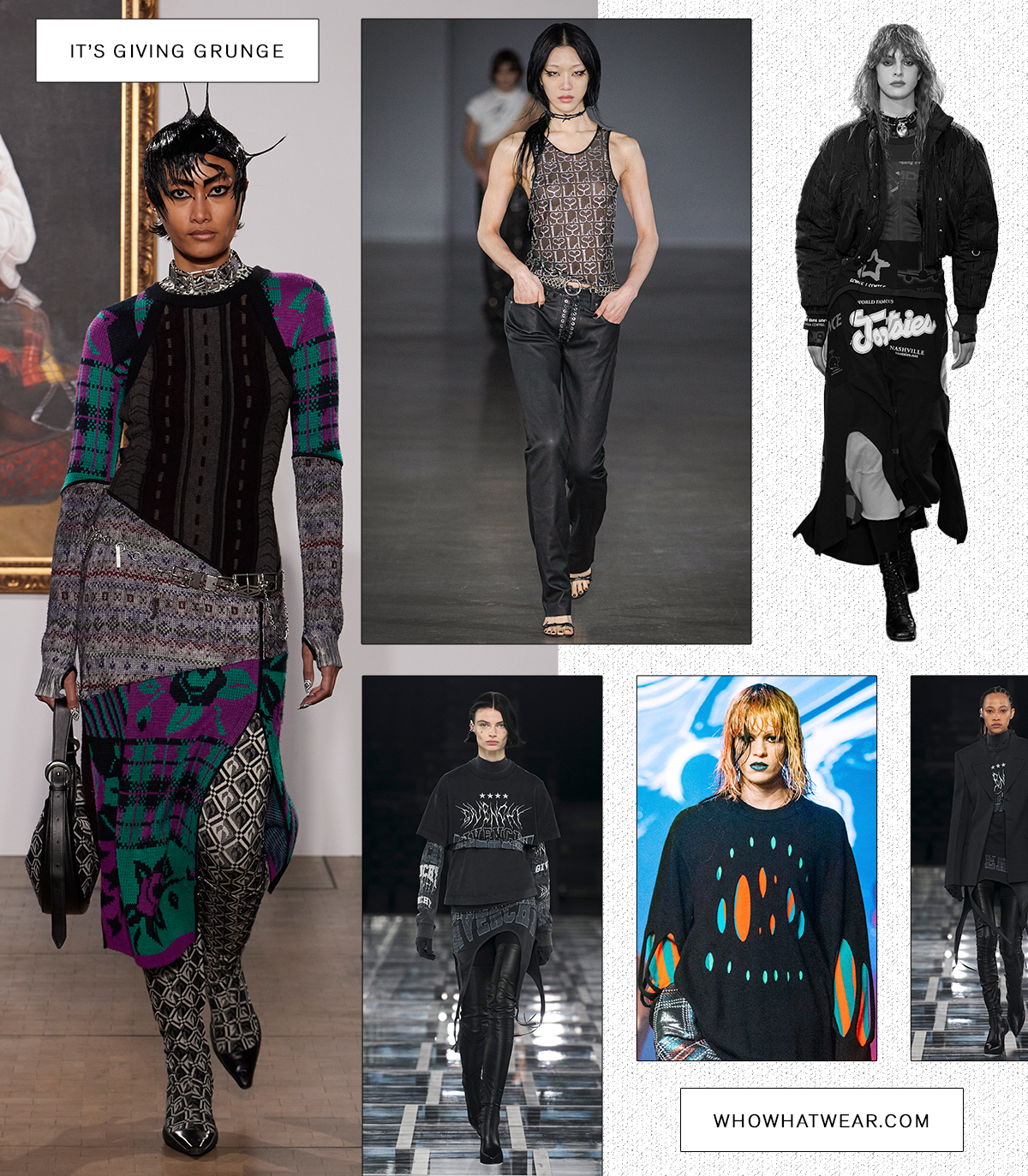
Without the rise of punk and goth fashion in the '80s, we may have never had the most controversial style movement of the '90s—ahem, grunge. Alt fashion has always been about going against the grain, and nothing speaks to that more than the rise of grunge. A few things distinguish this movement from the previous alt movements, the main things being its origins and its feel. While goth and punk may have been associated with London's youth, grunge got its start on the shores of Seattle. Many popular heavy metal and punk bands wouldn't tour every part of the United States during their heyday, so it sparked an alternative sound and style movement to the broader alt movement happening at the time.
Grunge was defined by the rise of bands like Nirvana, and the style is often credited to the band's late lead singer, Kurt Cobain. Unlike the former stars of the past, musicians of the grunge movement were not giving that "rock 'n' roll" vibe; instead, they'd often be fully disheveled in the baggiest possible clothing that looked like it was from the local thrift store. You wouldn't expect this look (characterized by striped sweaters, flannels, practical sneakers, and combat boots) to become high fashion, yet it somehow did.
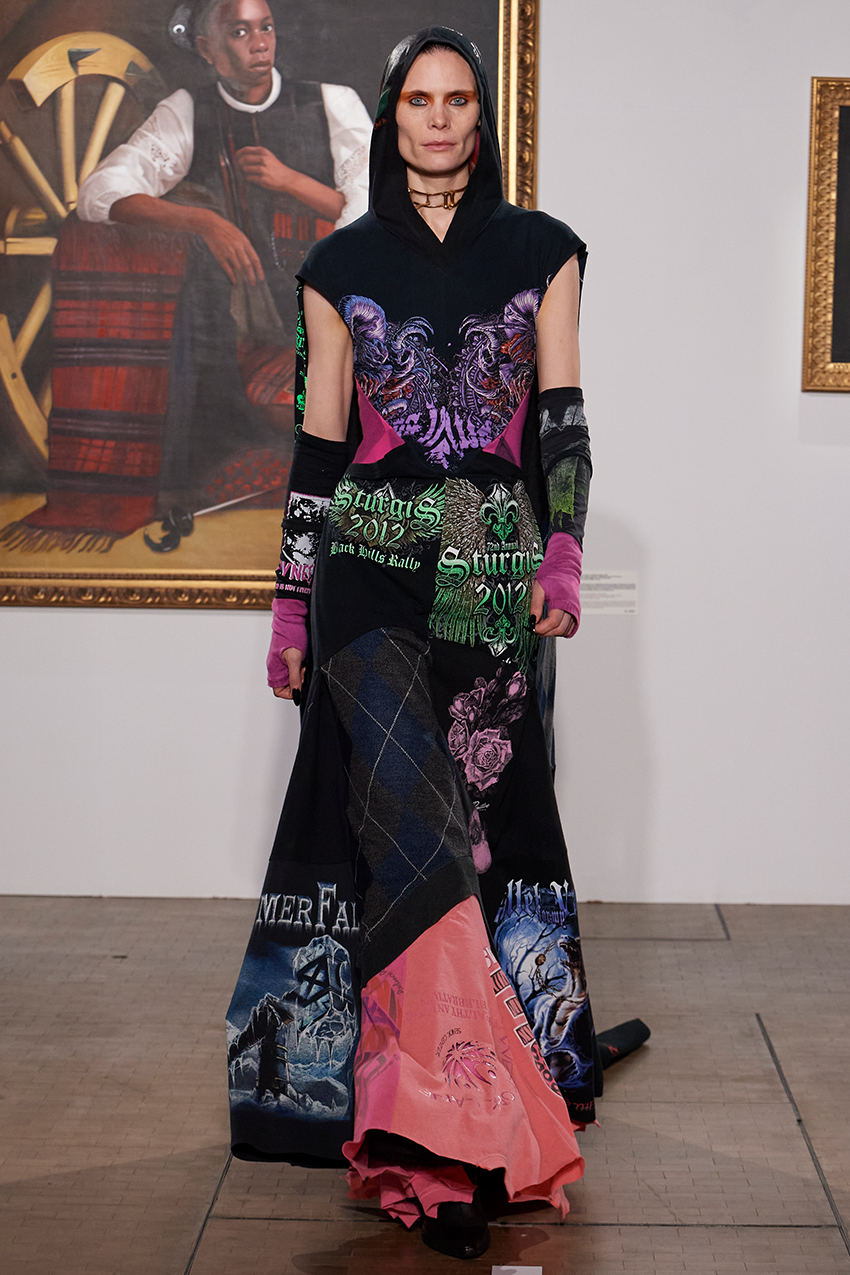
That movement toward making grunge happen was championed by designers such as Anna Sui and Marc Jacobs in the early '90s. And while the initial grunge movement caught the ire of the fashion industry (Jacobs was fired from his creative role at Perry Ellis for his grunge collection), this aesthetic has made another comeback. Everywhere you looked, F/W 22 collections were filled with grungy elements: Oversize T-shirts made their way down the runway at Givenchy, and band tees were quilted together at Marine Serre, proving once again that not only is this style back, but it's giving the alt girlies what they want.
Shop grunge-inspired pieces:
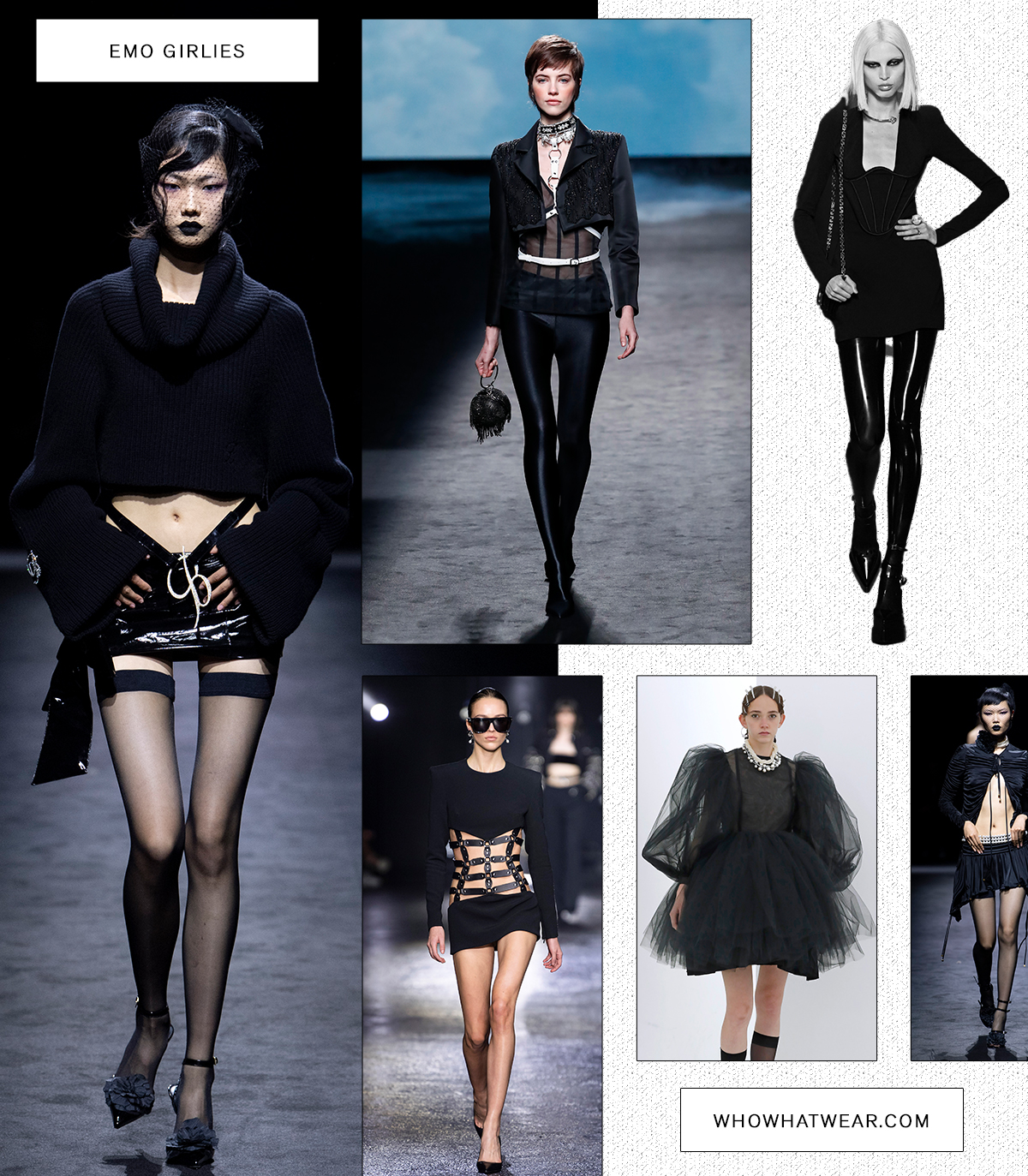
Considering the recent return of all things Y2K-related, it was only a matter of time before low-rise jeans and butterfly-adorned pieces made way for darker flashbacks from the past—aka, the return of emo fashion. Anyone who neared adolescence or was fully a teenager from mid-2003 to 2014 can recall when the only bands anyone cared about were Panic! At the Disco, Simple Plan, and Avril Lavigne. Or how, after school (or if you happened to ditch math class), the place to shop for emo essentials was Hot Topic—skinny jeans, tulle tutus, hair bows, studded belts, Vans, and rubber-band bracelets. While this alt movement may catch the most flack compared to others, it's no less influential.
Emo music goes back well into the '80s and came to fruition as other alternative movements did. But unlike with other movements, musicians regularly stigmatized this label because they didn't want their music to be seen as "soft" or too "feminine" with their lyrics often being hyperemotional. This stigma was also, in some ways, transferred to how the culture at large reacted to the emo fashion aesthetic taking over in the aughts—donning this look was not going to land you on any "best dressed" list at the time. But things change, and a search through recent runway collections or celeb looks can tell you that, like it or not, this alternative aesthetic continues to be prevalent.
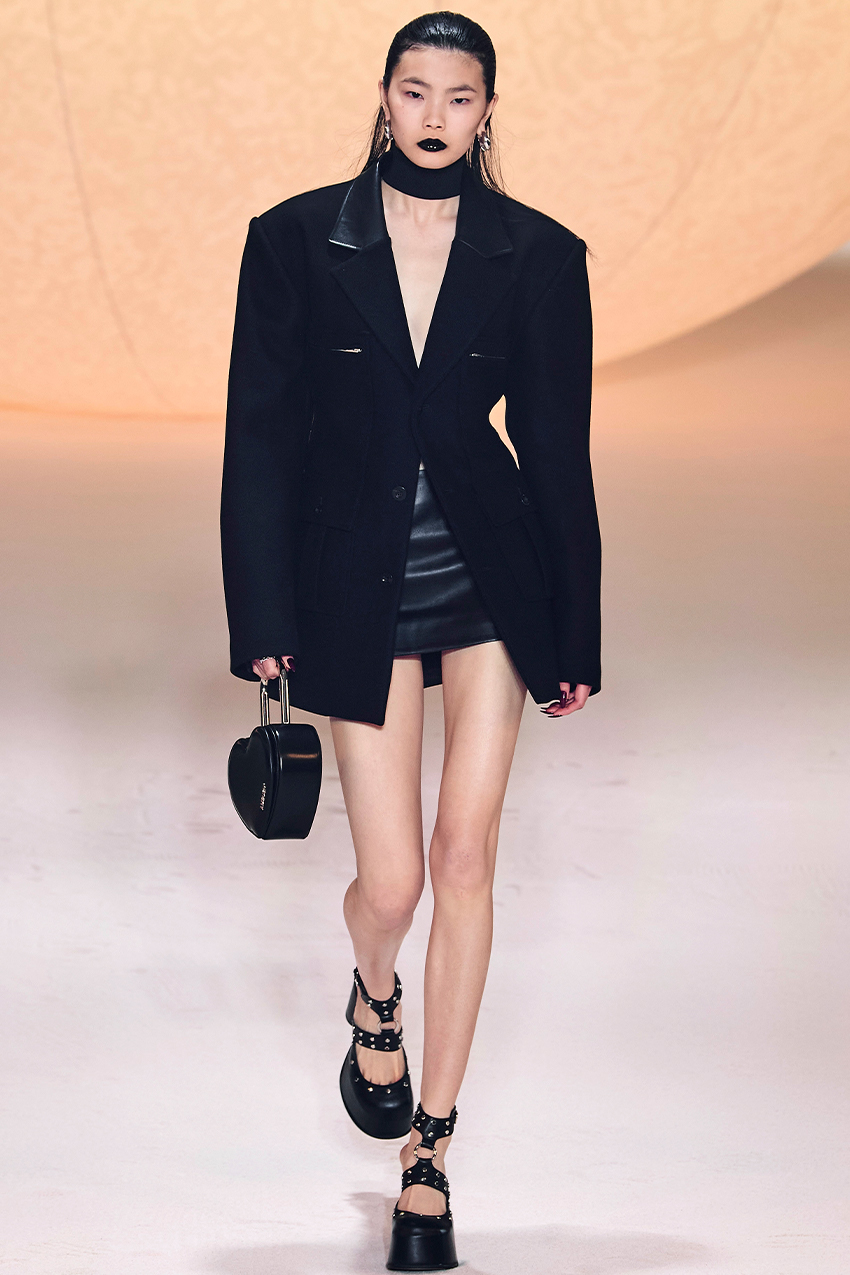
However, before you have full flashbacks, don't panic; the emo fashion aesthetic has evolved since it was first popularized. You can see that change through how moody looks have recently been donned by A-listers like Willow Smith or Kourtney Kardashian. But the clearest indication is found in the F/W 22 collections. These looks still featured that signature tight fit that's distinct to this subculture but more grown-up. Take, for example, the formfitting satin and latex leggings seen in Versace's and Fernando Claro's collections or the micro miniskirts at Blumarine and Ambush. But if that weren't enough to convince you to be in your feelings, then the fact that fitted tanks were swapped for formfitting blazers and cropped cardigans should convert you to the cause. It's arguably the best aesthetic to adopt for fall because it not only is easy to wear but also gives us a chance to do over our adolescent angst (in a more stylish way).
Shop emo-inspired pieces:
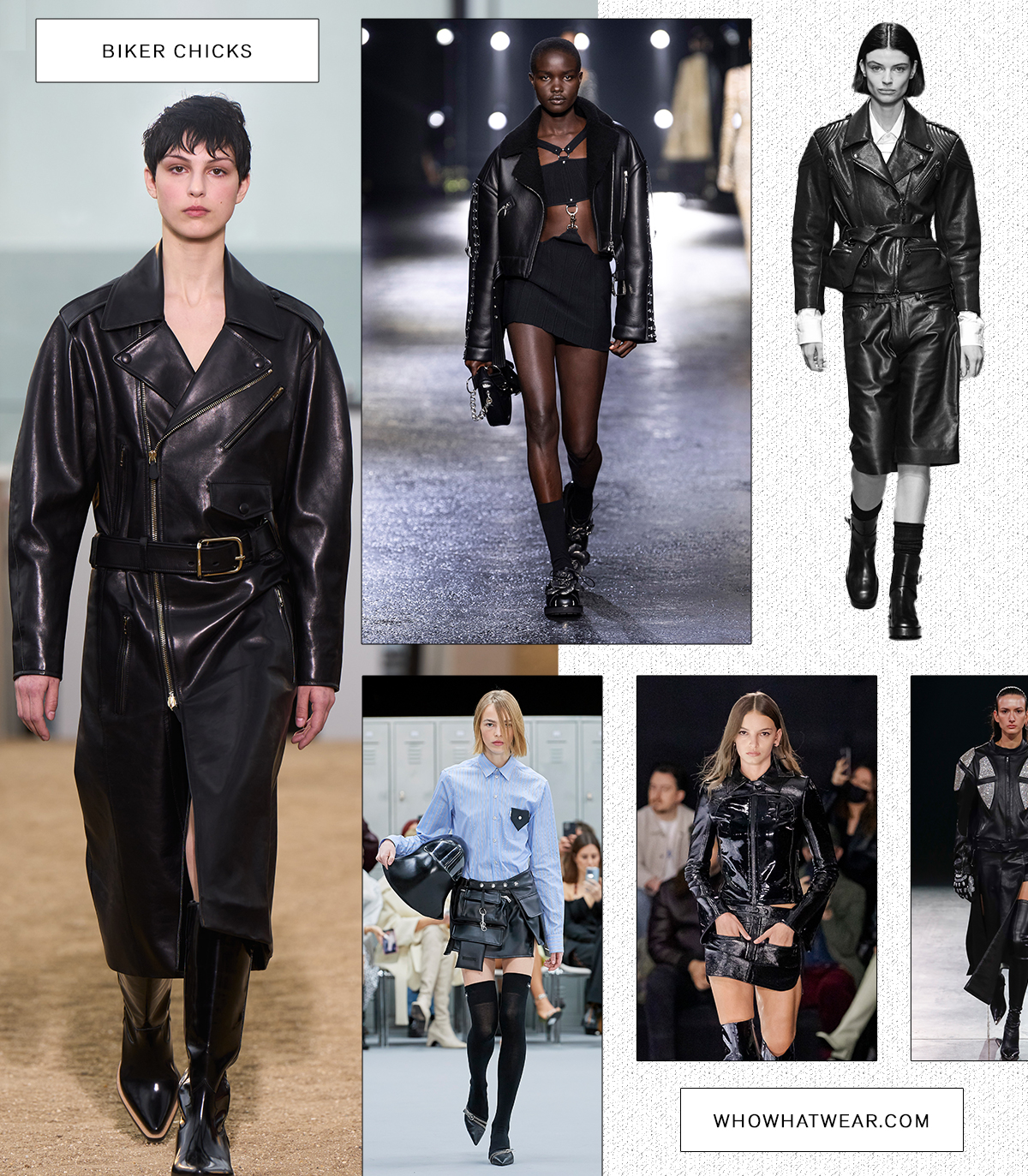
Consider this your public service announcement that not all alt-fashion aesthetics have to be tied to political or musical movements. Case in point: biker fashion. Long before goth, punk, or emo were "trendy," the bikercore aesthetic laid the asphalt for future alternative fashion movements. Similar to how each subculture became a part of mass culture, motorcycles were initially only available for the very few who had the financial means to afford them. It wasn't until the '20s that this vehicle was more accessible to more consumers, and more importantly, it wasn't until the '50s that we began to see this motocross aesthetic become popular.
If you can believe it, the now-timeless moto jacket wasn't even on the radar of most Americans until Hollywood icons like Marlon Brando, James Dean, Elvis Presley, and The Beatles were donning it. Since then, the biker jacket and all the subsequent staples (like black boots, chunky jewelry, and speedy sunglasses) have captured our collective attention. There's no further proof of that than the F/W 22 runways.
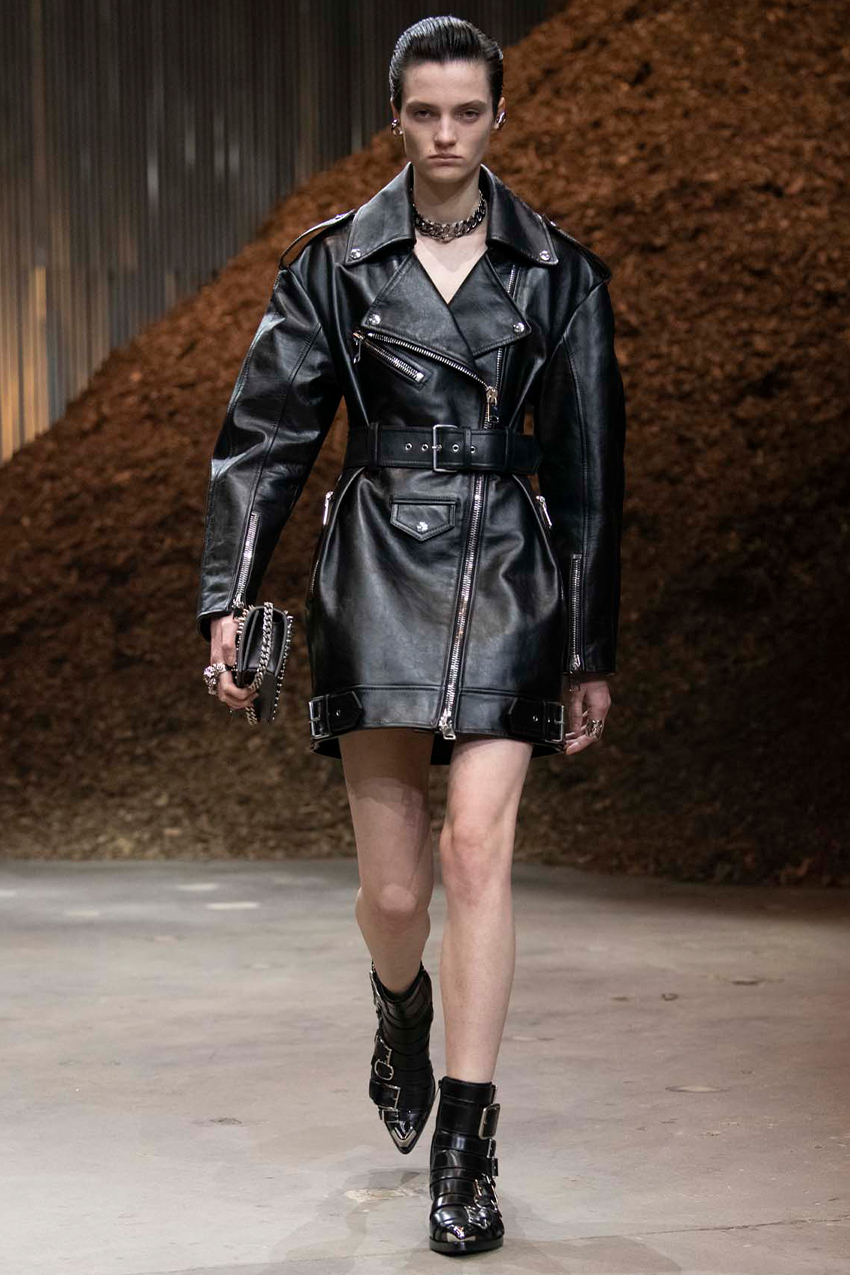
While motocross-inspired pieces always manage to pop back up every few seasons, the dedication to the biker aesthetic this season was as loud as a revved engine. There were more literal nods to the aesthetic—moto helmets were carried by models at Coperni, and classic head-to-toe leather looks were spotted at Chloé and Alexander McQueen. But then there were the subtler nods to the movement like tattered denim looks paired with sporty sunglasses at ACNE Studios, miniskirts paired with thigh-high boots at Courrèges, and motocross-inspired corsets and gloves at Dior. The result is a culmination of looks and staples that make embracing that carefree biker vibe easier than actually learning how to ride a motorcycle.
Shop biker-inspired pieces:
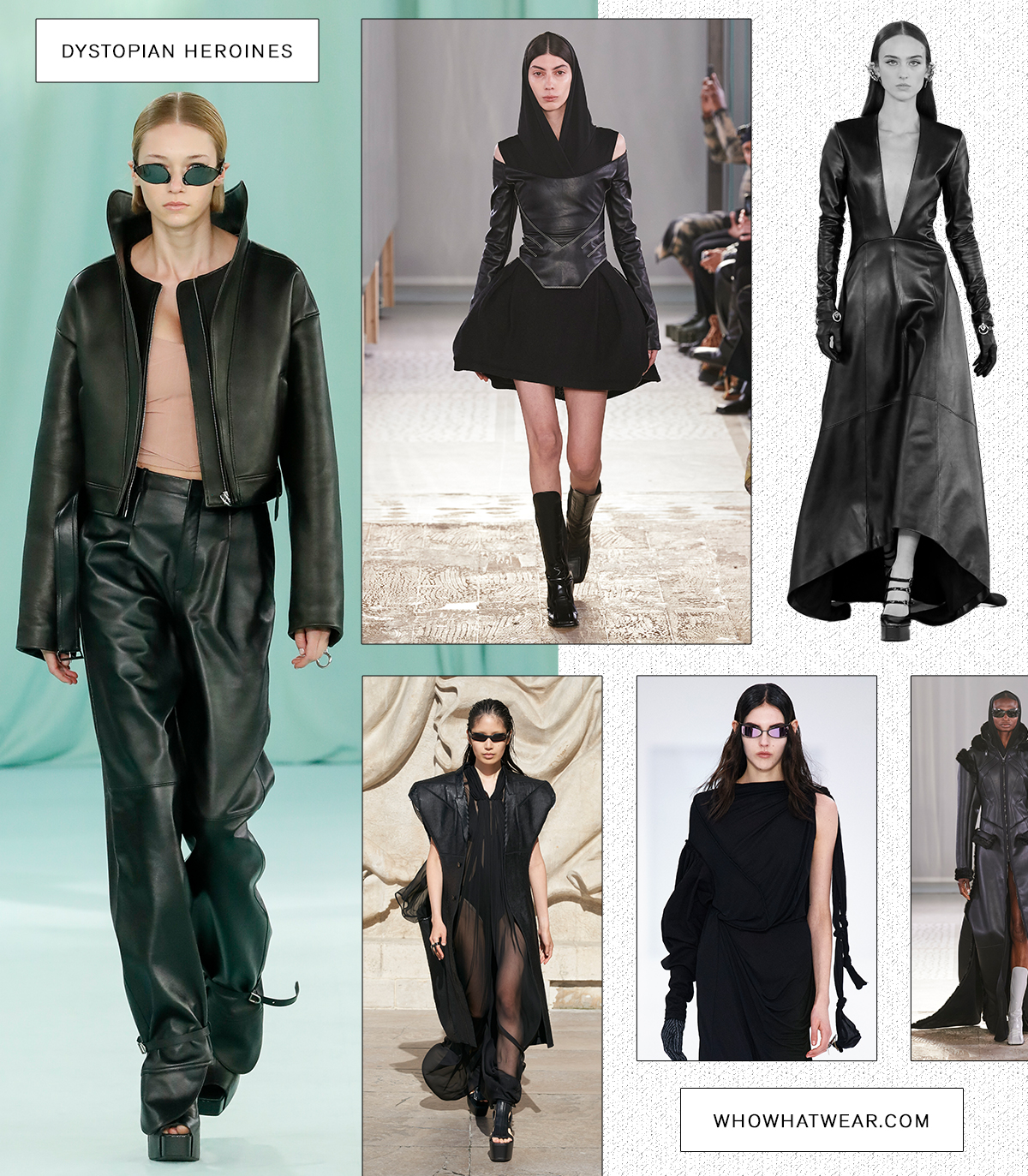
The end of this story is nigh, but for many, exploring what alt-girl fashion means to them is just beginning. There are so many aesthetics you can explore to tap into all the feelings and playlists that are inspiring you at the moment, but if there's one current movement you should keep an eye on, it's what I'm calling "dystopian heroines." In layman's terms, this aesthetic is that end-of-the-world uniform inspired by all former alt-fashion movements but with more of a futuristic bend. Think head-to-toe black looks, maxi-length leather coats or dresses, chunky shoes, leather gloves, and '90s-inspired lenses. Basically, it's what you'd picture characters like Trinity from The Matrix or Katniss Everdeen from The Hunger Games wearing in the final countdown of the film to save the world (or themselves).
And while this aesthetic seems within the sci-fi realm, considering the state of the world, it seems only fitting this aesthetic would begin to bubble up. But unlike former movements, this wasn't started because of a rising music genre, new technology, or general angst—it's come from the minds of fashion designers.
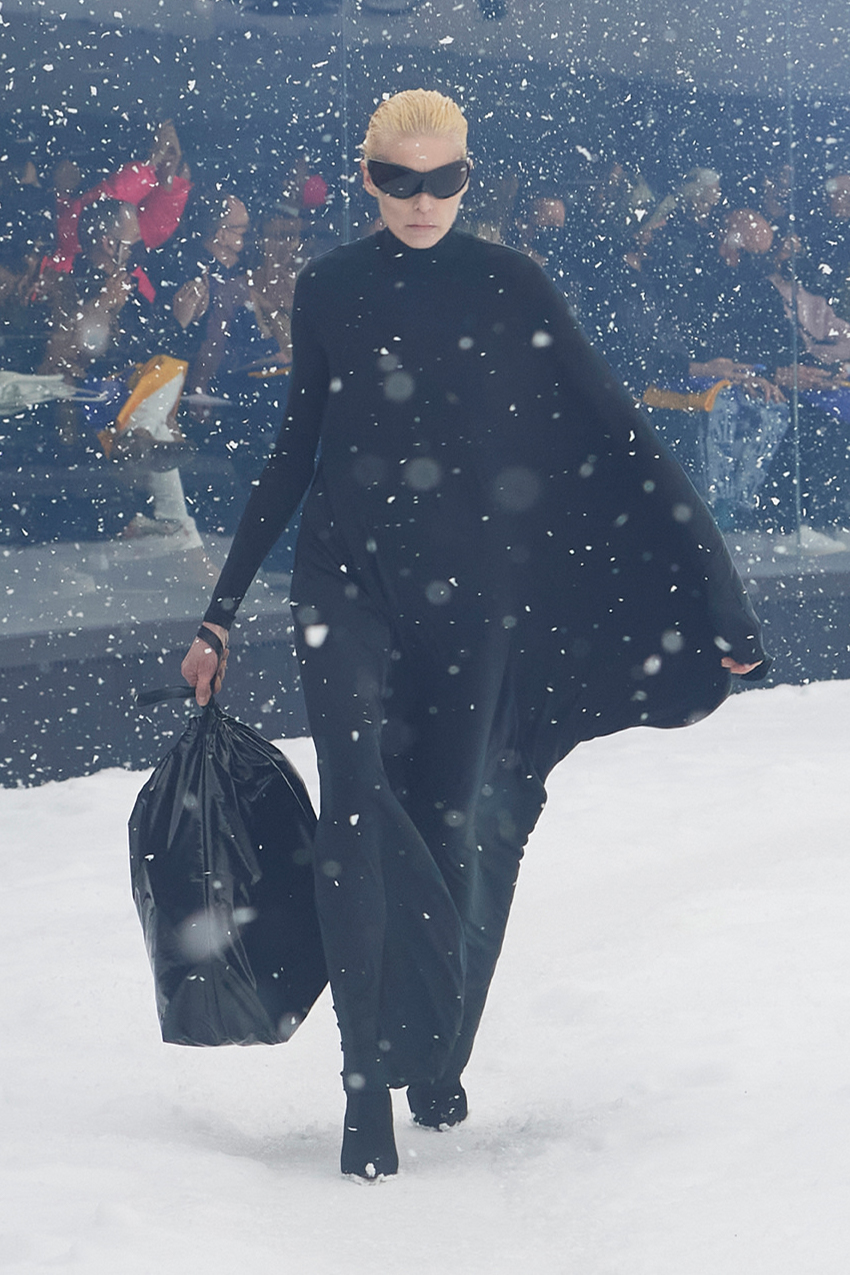
More specifically, it's come from the genius mind of Demna of Balenciaga. While the dystopian look was everywhere this fall (from ACNE Studios to Del Core), Balenciaga has been doling out "end-of-the-world" looks since the onset of the pandemic. You weren't going to find the escapist aesthetics like cottagecore in these collections—it's all about looks that make you uncomfortable. Whether that's the viral all-black jumpsuit spotted on Lizzo and Kim Kardashian or the $1790 handbag shaped like a trash bag, each piece is meant to make us think about how we define what is fashionable. Like all great alt-fashion aesthetics, the creation of the dystopian heroine uses fashion to tap into the collective psyche. Whether that makes it thought-provoking or anxiety-inducing, it's clear that this alt-girl aesthetic, and every other one in this story, paint a picture of the moment we're in.
Shop dystopian-inspired pieces:
Next: Hot Girl Summer Is Out, and Villain Era Is In—Here's What to Know and Wear
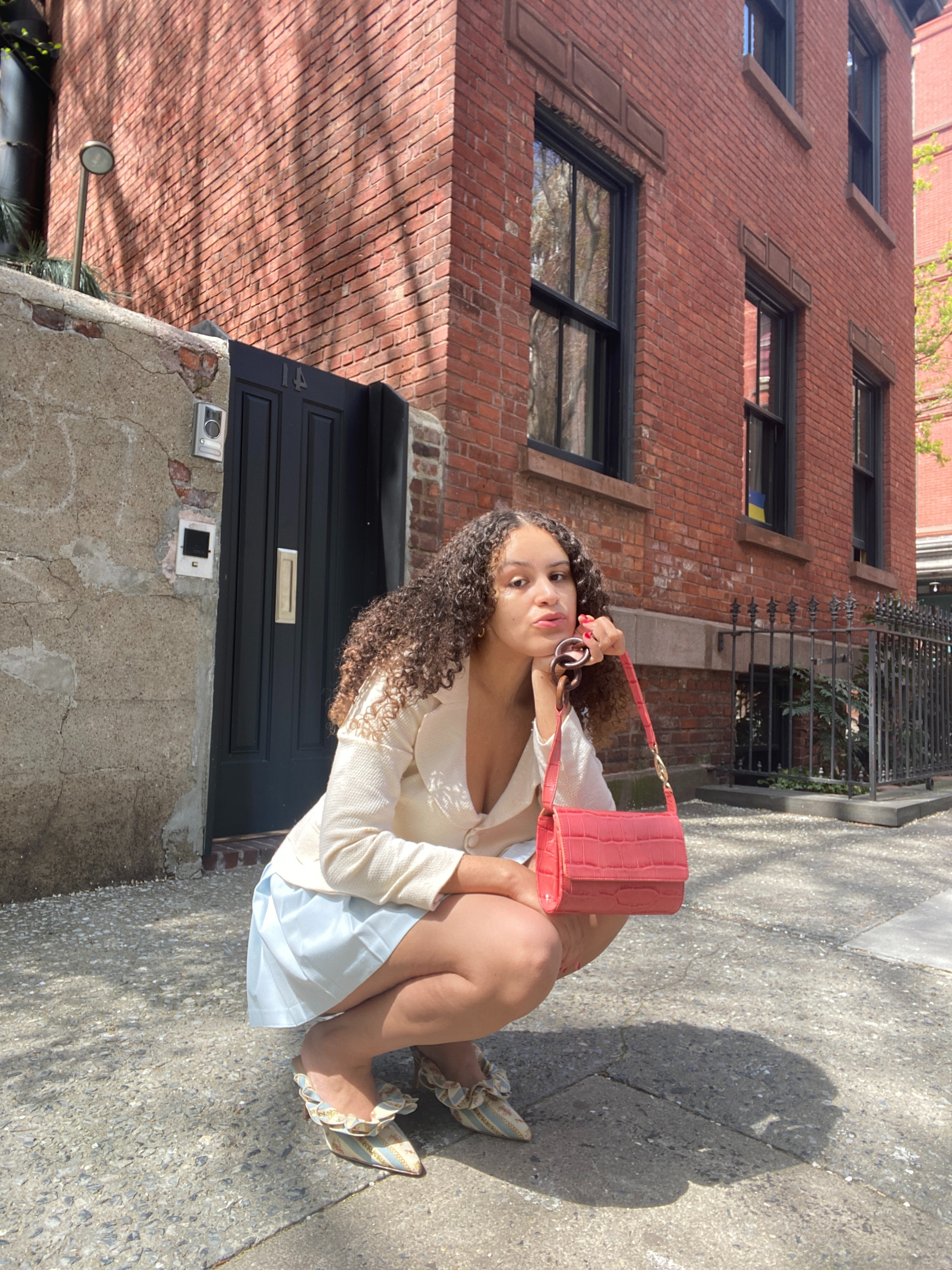
Jasmine Fox-Suliaman is a freelance writer and editor living in New York City. What began as a pastime (blogging on Tumblr) transformed into a lifelong passion for unveiling the connection between fashion and culture on the internet and in real life. Over the last decade, she's melded her extensive edit and social background to various on-staff positions at Who What Wear, MyDomaine, and Byrdie. More recently, she’s become a freelance contributor to other publications including Vogue, Editorialist, and The Cut. Off the clock, you can find her clutching her cell phone as she's constantly scrolling through TikTok and The RealReal, in search of the next cool thing.
